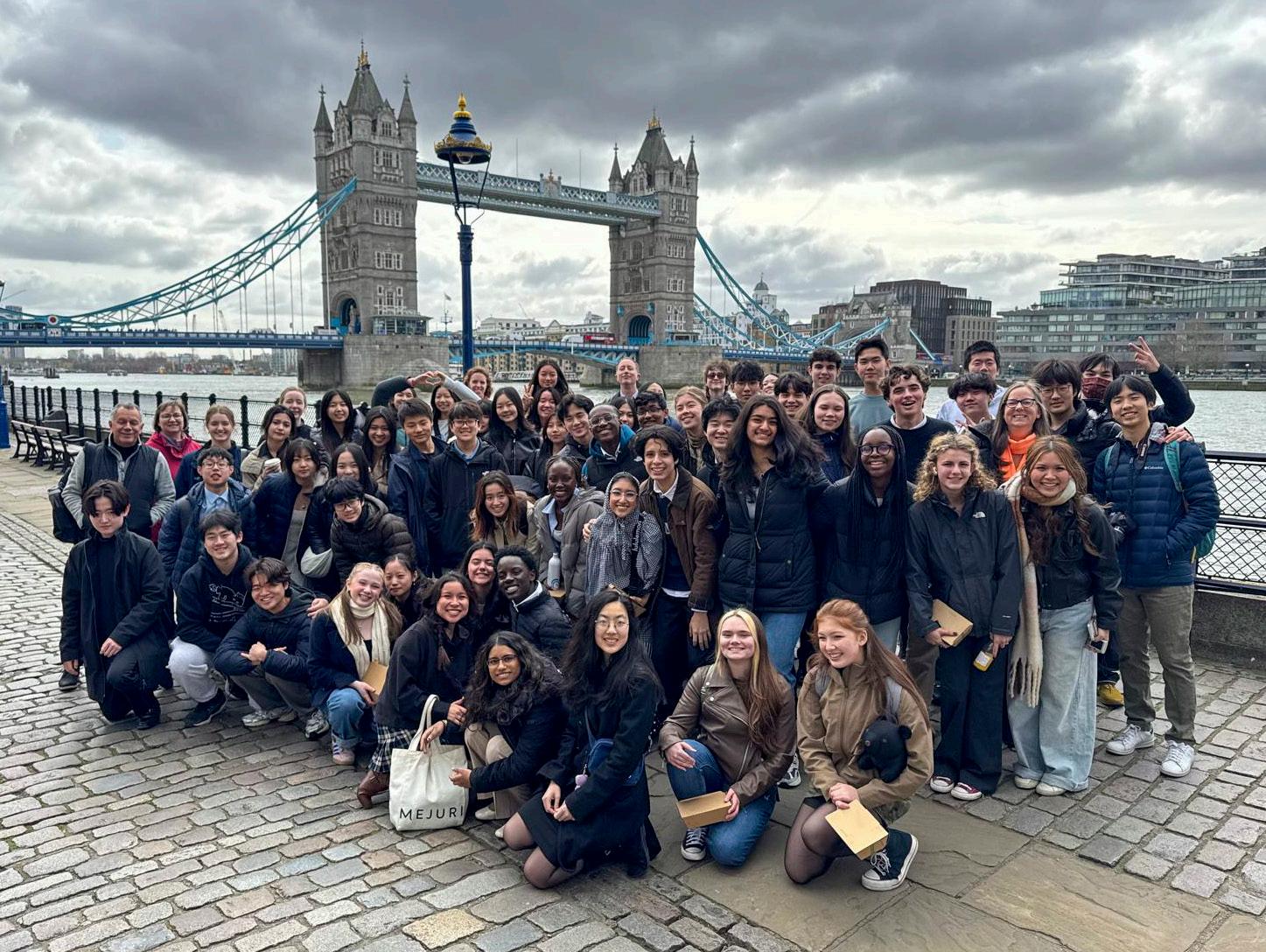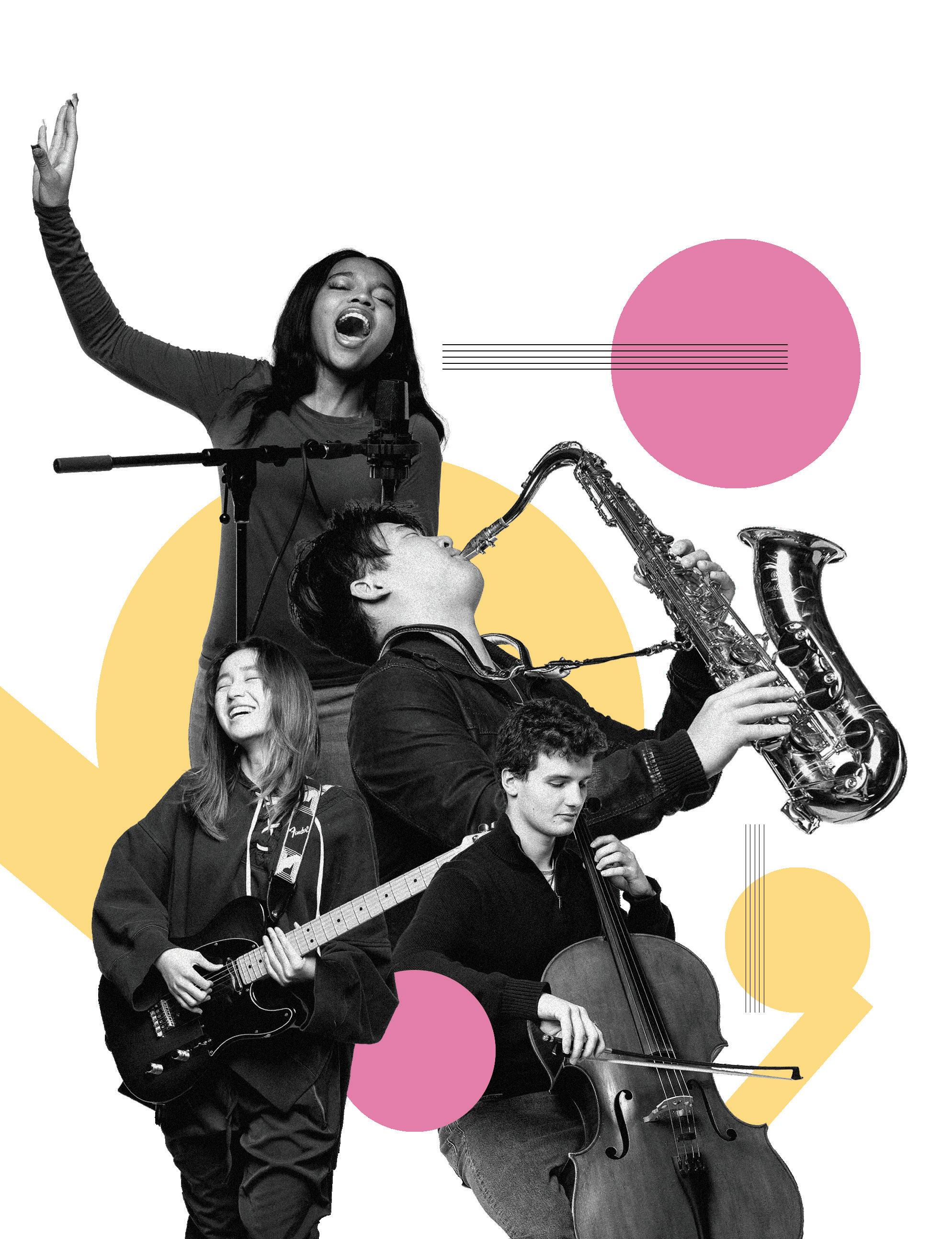
Up First




Up First


Entering the sun-filled atrium of Falls Music Center, you are immediately struck by precision architecture and design. Look up and you’ll notice the simulated sound waves dancing on the ceiling. Through glass walls, a student is practicing piano; another is mixing an audio track in the music library. Sounds of creativity emerge in every corner—instruments being tuned, an ensemble rehearsing, the toe-tapping rhythm of a double bass. Music arts hold an important place in Andover’s curriculum, and not just for those who perform at advanced levels. Virtually all students earn music credits to meet their diploma requirements.
Music inspires on multiple levels. It entertains, it educates, it transports us to places of happiness and perhaps even pain. It evokes memories and connects us to our heritage and culture. For those who practice or perform consistently, research has long-confirmed music’s positive effect on creativity and cognition, self-confidence, focused thinking, and the ability to solve complex problems.
With this foundation, Phillips Academy is excited to expand access to classical music beyond our traditional student population with the debut of the Musical Minds summer institute.
This pilot program is designed for rising 7th and 8th graders from around the world who seek a
summer experience that will advance their musical study and help them develop lasting friendships and artistic bonds. Along with strong academics, students must display proficiency on their instrument.
An Andover alumna who is very active in music diversity programs helped us identify thought partners as we conceived the program. And now, thanks to alumni and parent donors and local partnerships, we are able to offer need-based financial aid to qualifying students. This will help achieve the goal of creating an intentionally diverse cohort of budding musicians. Students from greater Boston and around the world will participate in academics, learn from expert music educators, and train with visiting performers. After completing the five-week residential program, this inaugural class will form a 24-piece orchestra and showcase their talents in a public performance.
This unique approach to music education will ignite new possibilities for all participants, while also enriching a world in which classical music reflects the strong diversity of our communities.
Raynard S.
Andover magazine reinforces the special connection alumni have with Phillips Academy and Abbot Academy. Through thought-provoking stories, contemporary design, and inspiring profiles of alumni, students, and faculty, we aim to highlight the school’s enduring values, recognize our unique history, and celebrate the rich diversity of our community.
One of the best parts of my job is interviewing remarkable alumni like Betsy Parker Powell ’56, P’84, ’90, GP’19. After graduating from Abbot Academy and Smith College, Betsy went on to have a trailblazing career that included co-founding a machine-sharpening company with her husband, teaching management classes at Babson College, and serving on numerous committees and boards, including at PA, where she was a steady and vital presence for 45 years.
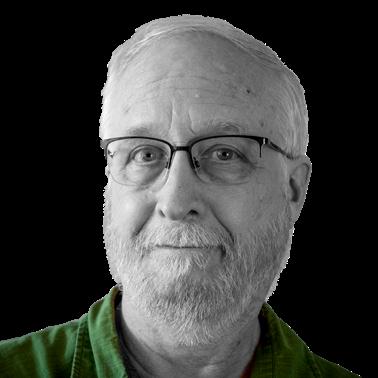
“I was the nerdy kid who read algebra books at the library.”
PAUL HERTZ ’67
Andover, the magazine of the Phillips Academy and Abbot Academy community, is published four times per year. It is produced by the Office of Communication at Phillips Academy, 180 Main Street, Andover, MA 01810.
Main PA phone: 978-749-4000
Changes of address and death notices: alumni-records@andover.edu
Phillips Academy website: www.andover.edu
Andover magazine phone: 978-749-4677 Email: magazine@andover.edu
I met with Betsy on a chilly winter afternoon and spent several hours with this gracious woman, who has given so much of her life to the people and organizations that are meaningful to her. She is, as Charter Trustee Gil Caffray ’71 points out, an important bridge to the institutional histories and values of Abbot and PA, integrating caring, innovation, and boldness with non sibi. You can read more about Betsy on page 104.
This issue also introduces Andover’s newest building, Falls Music Center (see page 24). Offering the latest in music technology along with outstanding teaching and performance opportunities, the facilty is already becoming a vibrant campus hub that is literally humming with activity. And our annual feature on retiring faculty pays tribute to four inspiring teachers—Pat Farrell P’08, Lou Bernieri P’96, ’10, Mike Kuta P’12, and Thayer Zaeder ’83, P’17— who have had an enduring impact on the lives of so many in the PA community.
Do you know of an Abbot or PA teacher or graduate who embodies the spirit of non sibi? Please reach out so we can share their stories with the Andover community.
Allyson Irish Editor magazine@andover.edu @andovermagazine
9
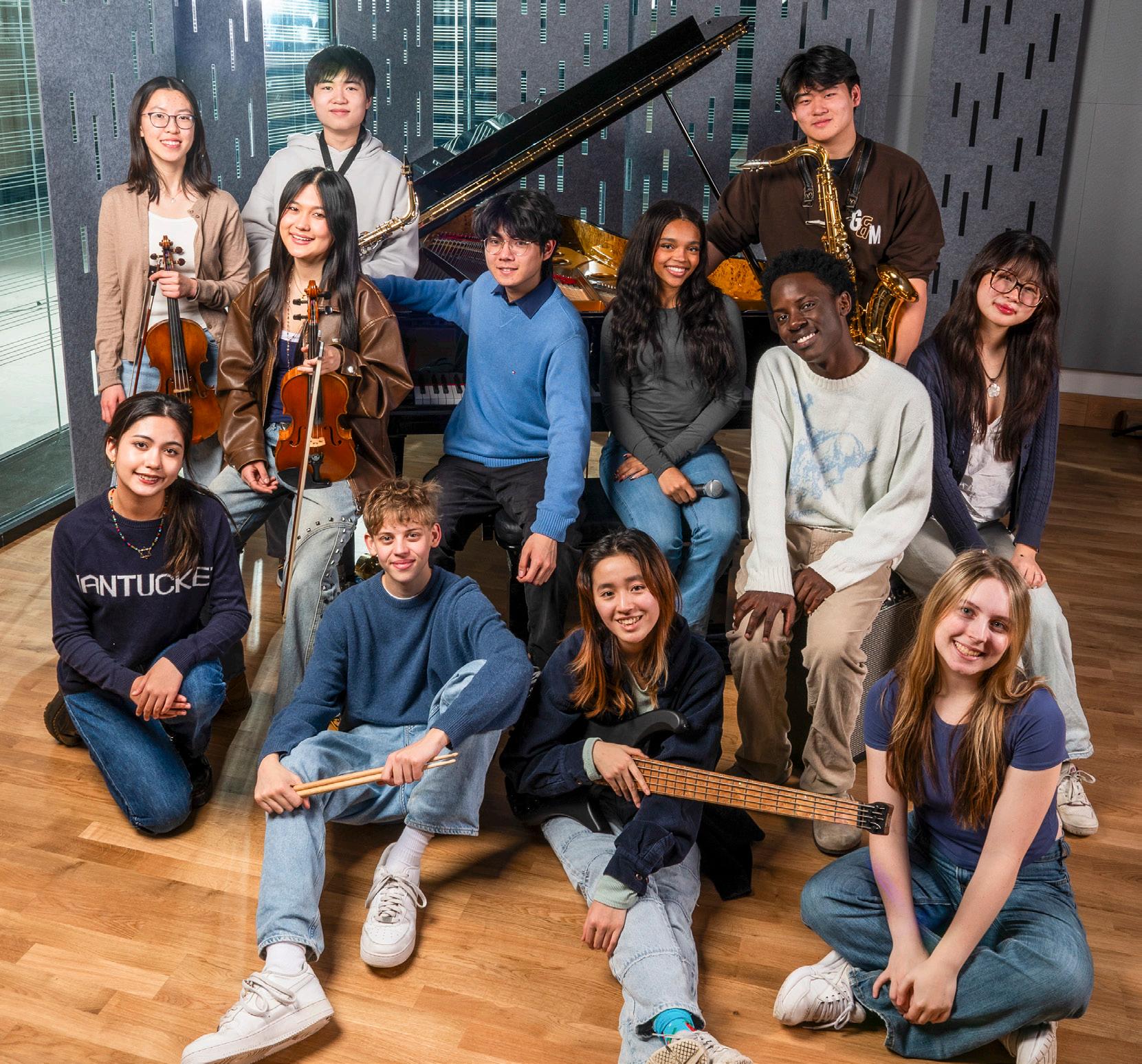

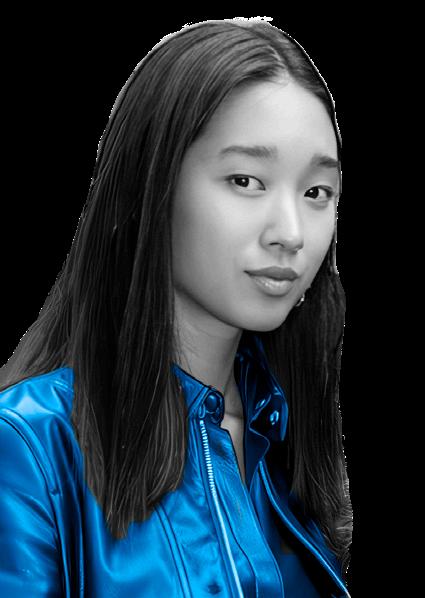
“Fail fast. Fail often. Mistakes are key to growth.”
CLAIRE LEE ’19

Iliked all the stories in the recent fall/winter 2024 issue, but two got my attention. The profile of Ranie Pearce ’79 rang a bell. When I was a pilot for Pan American World Airways, I often thought of swimming the English Channel, but the layovers in London were not near long enough. And George Weinmann ’93 seems like a kindred soul. I was working on space projects when I was flying for Pan Am and later worked on the first Saturn upper stage and other ways of getting to space more economically, including airbreathing aircraft.
—TONY DU PONT ’51
When I arrived at Andover from my small Texas town as a lower in the fall of 1971, my father helped haul my trunk to the top floor of Foxcroft Hall, shook my hand, and said, “Good luck.” I needed it. With no orientation, having never even visited the school, and a roommate who told me he hated Americans and Jews (I happened to be both), it was the start of a difficult three years. Since I had no experience to fall on, I had no expectations, including of Jewish life. And that was a good approach since there was nothing Jewish—no clergy, no organizations, no one with whom to find tribal comfort. Given my introverted nature, my complete lack of competency compared to most boys there, and my Texas drawl, I found no friends.
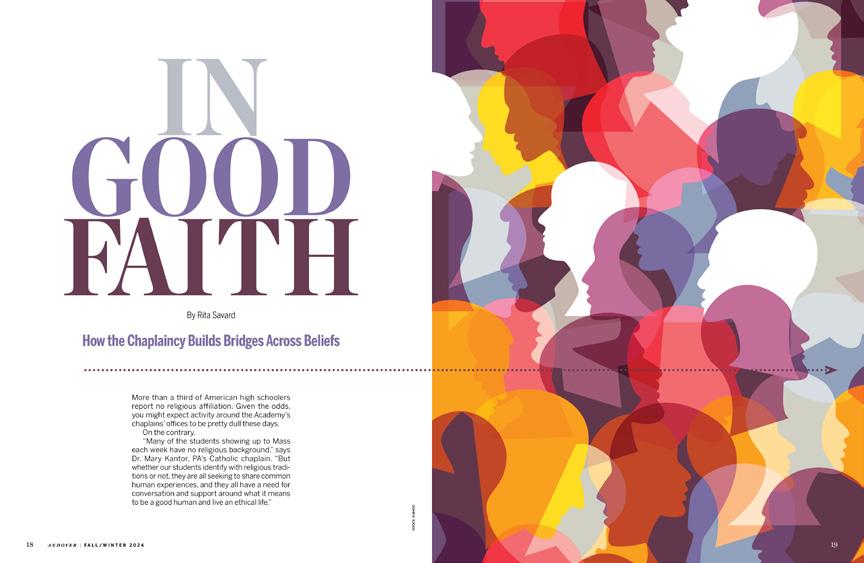
I never really found my place at Andover, though I was able to find a few dormmates with whom I was friendly during my senior year. My greatest joy at Andover was graduating in 1974. My situation greatly improved when I went to the West Coast for college (Claremont McKenna College) and graduate school
(Stanford Business School). I found loads of friends, a positive Jewish life, and a welcoming community. I have had a successful publishing career and have a large, traditional Jewish family, including nine Jewish grandchildren.
I’m cheered to have read that the school has made extraordinary improvements to serve students of all faiths and to make sure that my experience is never repeated.
—SLOANE CITRON ’74
Great job with Andover magazine. It is bright, informative, and well presented with interesting stories. I found the most recent issue very charming with the story about President George W. Bush ’64 and his painting of Thomas Lyons. As a 1968 graduate, I certainly shared basically the same Andover experience as President Bush. I also took “History 4” with Mr. Lyons; he was an absolutely wonderful instructor exemplifying everything that made/ makes Andover exceptional.
Mr. Lyons instilled a real love of history, particularly American history, in his students. Although he was a demanding teacher, he was also warm and caring, a wonderful coach and housemaster, and was instrumental in my college choice to major in American history.

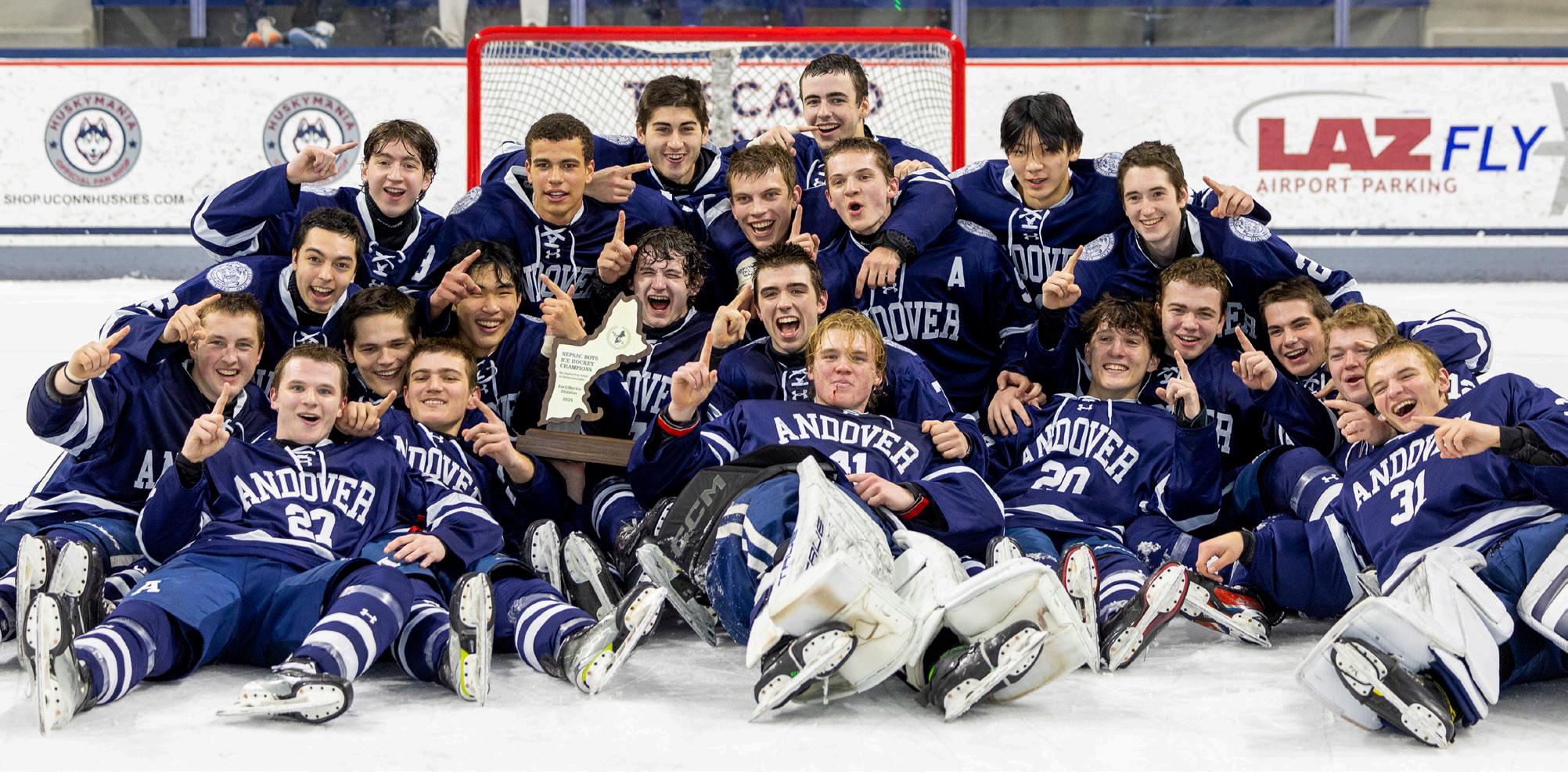
I left Andover, Mr. Lyons invited me to return a couple of times to speak with students. He knew me through my work with WBUR and National Public Radio. I am happy to say that during my visits we became friends.
At one point, Mr. Lyons came to a reading I was doing at a bookstore in Newburyport, Mass. One of the things I read was a doggerel poem about George W. Bush ’64. The poem ended with my wish that he’d stayed on as owner of the Texas Rangers rather than becoming president. Mr. Lyons laughed appreciatively at that conclusion. He said he remembered George Bush as a student. I said, “So it’s your fault!” Mr. Lyons laughed at that too.
I also want to acknowledge Will Scharf ’04 and his new role in President Trump’s administration. While President Trump may not be a popular choice at Andover, this is nonetheless an outstanding achievement by Mr. Scharf. I worked with Will when he was a Princeton undergraduate and a major factor in restoring the Princeton Charter Club to success. Will clearly demonstrated great imagination, creativity, and enthusiasm, and the entire graduate board of the Princeton Charter Club had tremendous respect for his commitment and, importantly, results.
—RODERICK MCNEALY ’68
I am proud to say I knew Tom Lyons. Though I did not have him as a teacher, I respected him and heard great things about him from my classmates. Many years after
I’m glad that the Lyons family is pleased with the portrait, but I’m discouraged that you’ve given Mr. Bush a free pass in your story. You’ve even celebrated his optimism at the end of the article. This seems to me misguided. Mr. Bush led this country into a war that took the lives of a great many people. He did this on the basis of the lie about Iraq’s possession of “weapons of mass destruction.”
History has demonstrated that his foreign policy was not just misguided, but dishonest and ruinous. Much more recently, Mr. Bush declined to say anything that might have helped derail the madness of Donald Trump’s return. Mr. Bush was silent, which I think was spectacularly irresponsible.
I wish Andover and places like it were less inclined to celebrate their graduates when they attain high office, whether or not they’ve been a credit to those offices.
—BILL LITTLEFIELD
’66
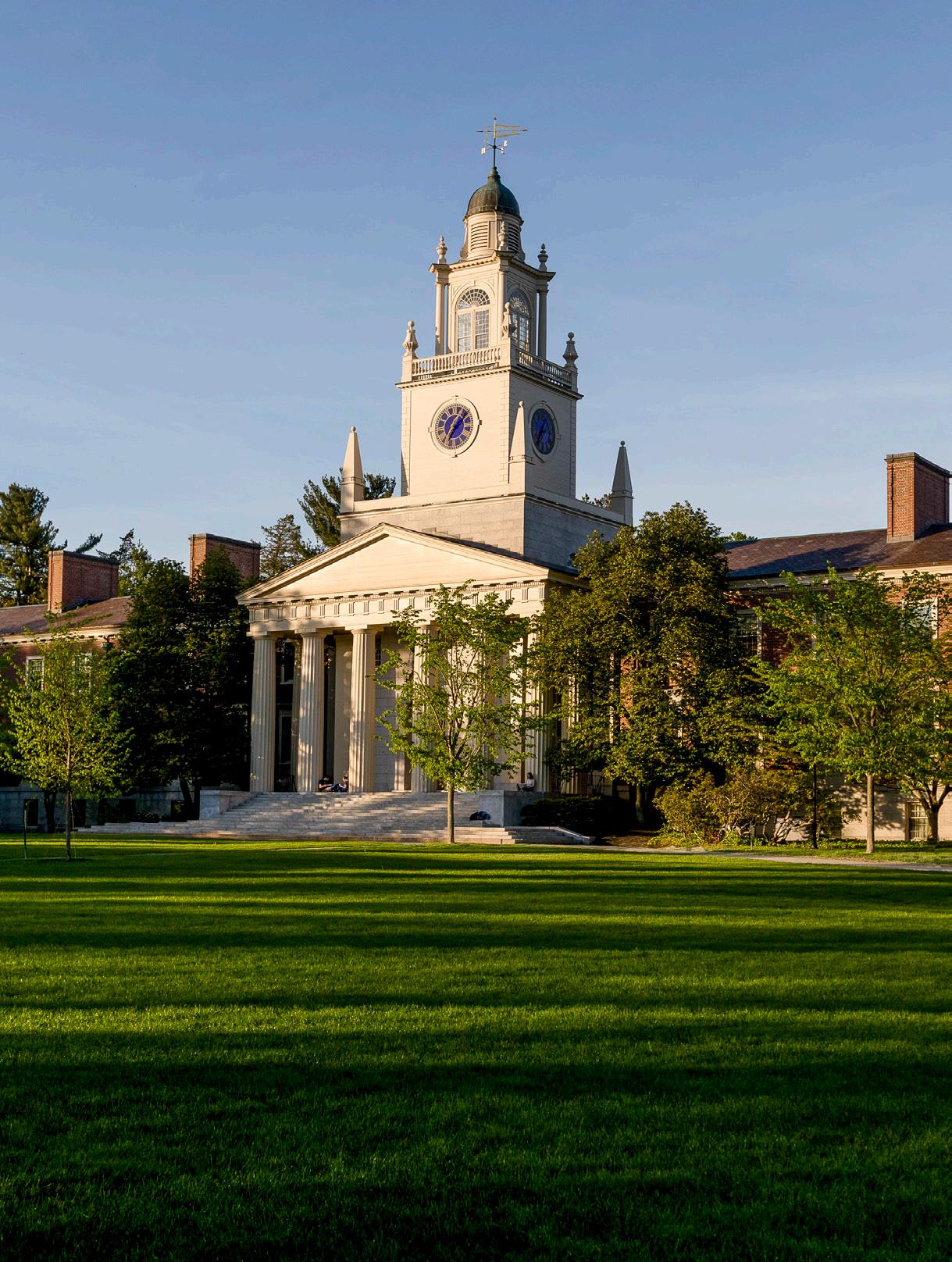

Students taking part in the “Dark Nights, Celestial Lights” Learning in the World program in Sweden had the opportunity of a lifetime in March. Based in and around Abisko National Park, they learned about the science and photography of aurora chasing, did some hiking and dog sledding, and visited with Samí reindeer herders. This snapshot was taken on a small frozen lake near the village of Torneträsk.
See more images at andover.edu/springlitw


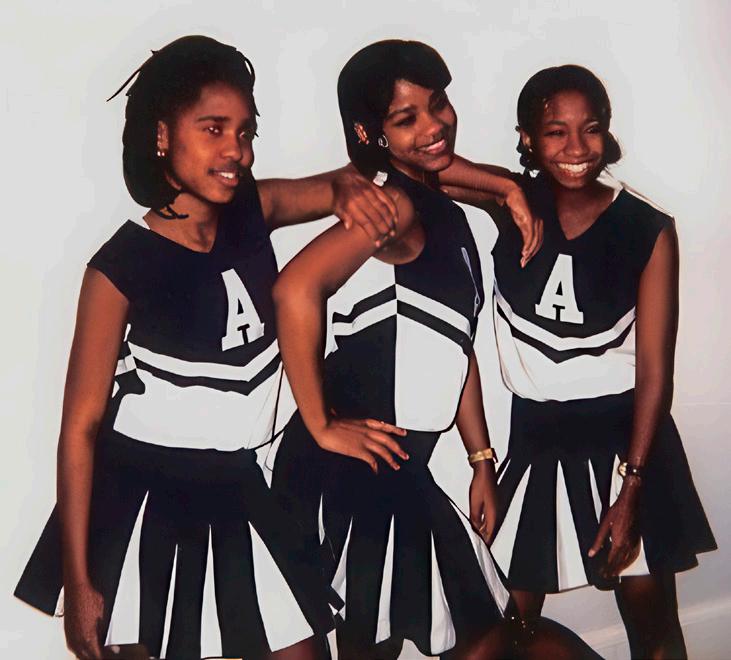
For 30 years, the Spirit Leaders of Andover Madness (SLAM) have been bringing electrifying energy and undeniable camaraderie to the sidelines of Phillips Academy basketball games. More than just a cheer squad, SLAM is a legacy—built on rhythm, movement, and a whole lot of heart.
Students approached Coach Leon Modeste in the mid-’90s with the bold idea of creating a unique cheer team that would also serve as a core sport. SLAM took shape; a dynamic fusion of cheerleading, step-dancing, and complex rhythms where a combination of hand claps and foot stomps are part of the performance. Over the years, it has become more than just a team. It’s a family, passing down traditions and unforgettable moments from class to class.
“We carry an incredible legacy,” says co-captain Maya Clark ’26. For alumni, the magic of SLAM doesn’t fade. Returning to campus and seeing the energy live on is both nostalgic and inspiring.
“I’m so proud SLAM continues to give young people a space to feel connected and welcomed,” says cofounder Ashanti (Hosier) Brinson ’95. “It's a blessing.”
tournament, first held in 1952.
Board President Emeritus Oscar Tang ’56 and his wife, Agnes Hsu-Tang, were featured in a New York Times story celebrating the couple’s philanthropy. The article highlighted gifts to The Metropolitan Museum of Art, New York Philharmonic, and the New York Historical, which will open its Tang Wing for American Democracy in 2026.

What some may consider distinct and unrelated areas of study, artist Paul Hertz ’67 sees as a rich array of interconnected forms for expression.
An independent artist, printmaker, and curator, Hertz was the Edward E. Elson Artist-inResidence at the Addison Gallery of American Art in February.
Intractable Light is one of several works that Hertz recently donated to the Addison. Each piece grew out of what Hertz describes as “an algorithmic process that I call ‘WaveSynth,’ because it behaves like an audio synthesizer that produces color patterns.”
Hertz grew up in Springfield, Ohio, and says he was “the nerdy kid who read algebra books at the library.”
After studying one summer with artist Ethel M. Cook back home in Ohio, Hertz was inspired to focus more on his own art at Andover. Later, at Brown University, he began to blend the study of fine arts with other disciplines, such as electronic music and ethnomusicology. One of his professors, Fred Lieberman, was particularly influential, introducing Hertz to the concept of intermedia, a term coined in the 1960s to describe the fusion of different artistic media.
Intractable Light showcases not only movement, but also color gradation and brightness. Hertz explains: “Low frequency waves produce large areas of color. High frequency waves produce fine details. The waves vary with time, producing cyclic animations, and intentional shadows emerge from dark below to light above.”
Coming from a family of quilters, Hertz also likens the image to a quilt.
“Textiles have been on my mind for a long time,” he says. “I’m happy when people see that. In production it may be all about math, but the end result is something much more familiar.”


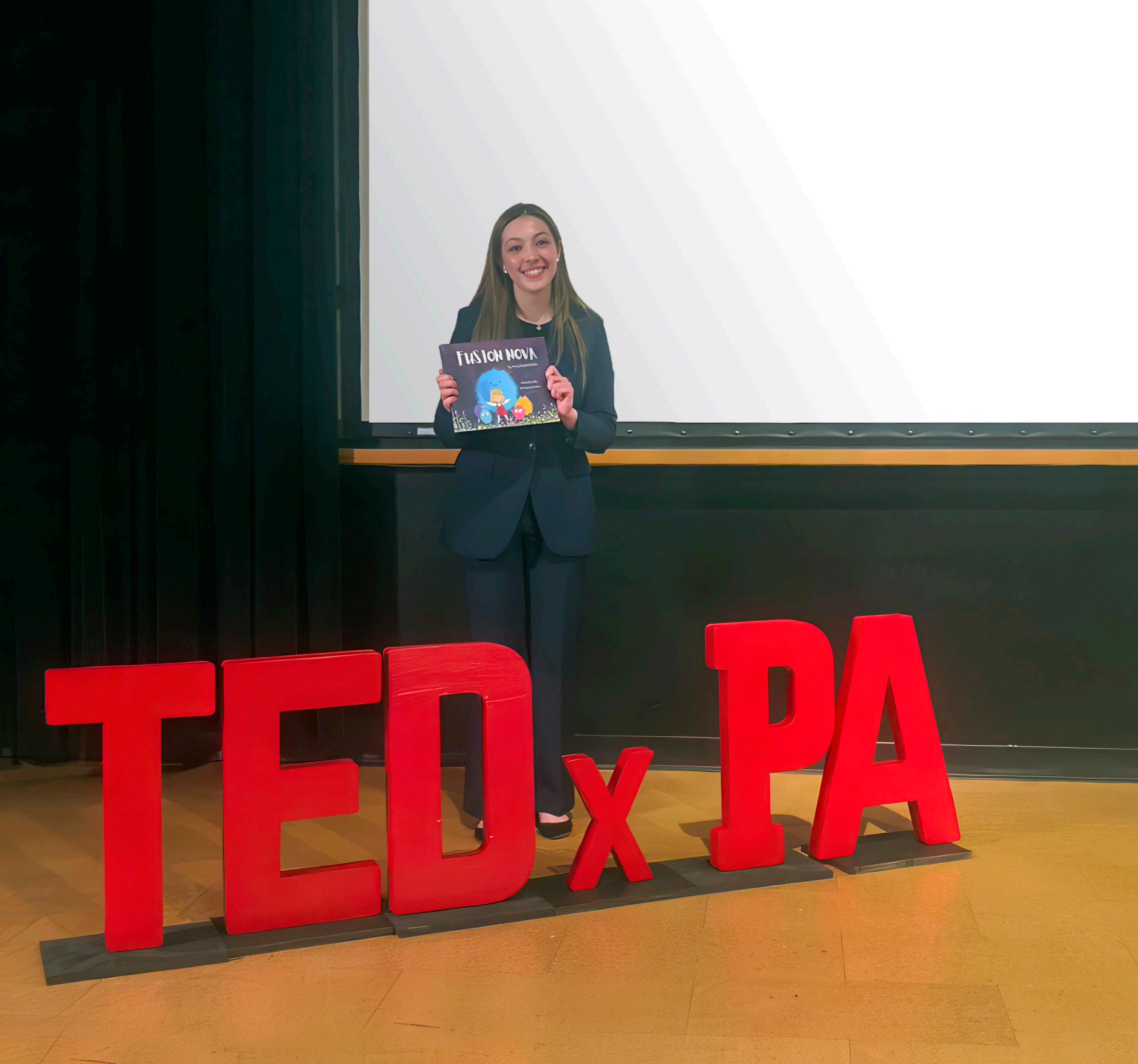
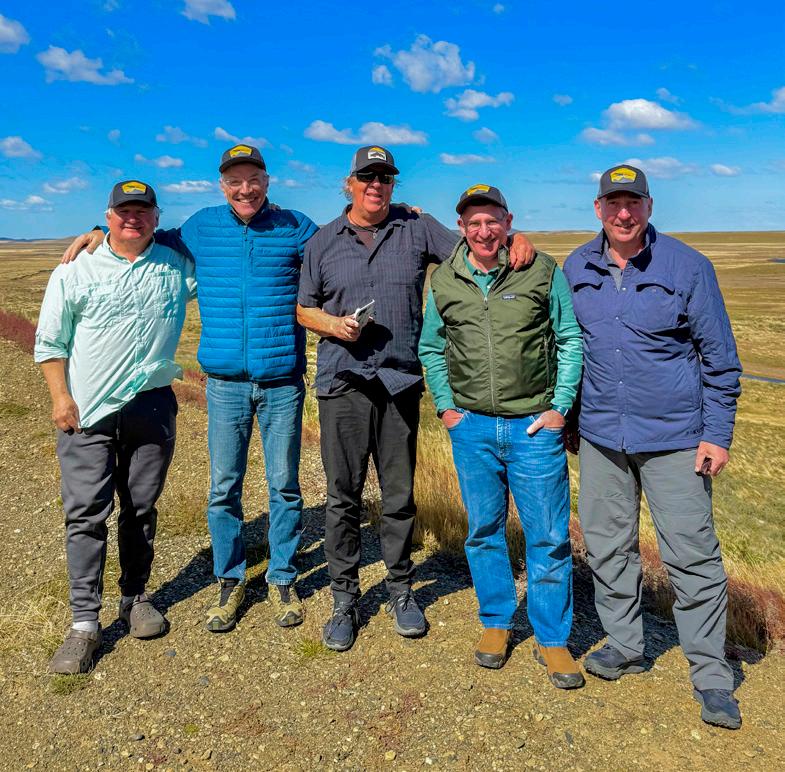
“Growing up I was fascinated by the stars, how they worked, and the stories behind them. I would lie outside in the grass behind my house for hours and get lost in the sky above.”

Stephen King of Hong Kong, has been appointed to the Phillips Academy Board of Trustees. King will serve a six-year term as a charter trustee. His appointment was effective beginning in March.
King is a managing partner of Violet Hill Partners Limited, a multi-strategy hedge fund based in Hong Kong; and managing partner of Monarch Partners, a single-family investment office. Prior to establishing Violet Hill, King was a partner at CCMP Asia (formerly J.P. Morgan Partners Asia).
King’s family legacy runs deep at PA, and he has remained connected to the school for decades. A loyal volunteer and generous donor, he currently serves on the Andover Development Board and the Asia Council. He also works with prospective students and families as an Alumni Admission Representative. King serves on the Board of Governors of the Chinese International School in Hong Kong and is a member of Harvard University’s China Fund and Asia Pacific Committee. He is also an award-winning fine art photographer whose works are celebrated and exhibited around the world in premiere venues including Art Basel and Fine Art Asia.
King resides in Hong Kong with his wife, Diana. He holds an AB in economics from Harvard University.
So what did Avery Davis ’25 do? She wrote a children’s book, of course!
Read more about Avery’s book Fusion Nova, with illustrations from her sister, Brinley ’27.
Andover’s first chief information and technology officer, Patrick O’Connor will begin his tenure June 1.
Reporting to the head of school, O’Connor will provide strategic leadership for campuswide information and technology initiatives—academic and administrative—including legacy systems, AI and other emerging technologies, cybersecurity and risk management, and data and network infrastructure.
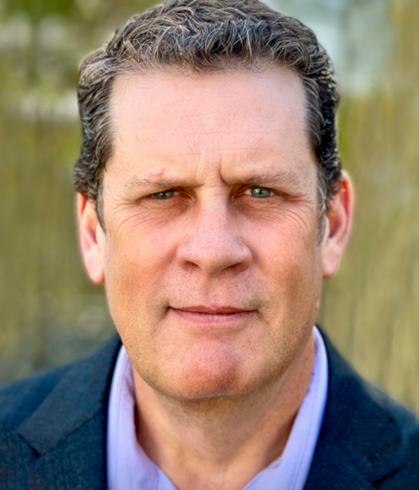
vice president for technology at Massachusetts College of Art and Design. He has been instrumental in helping to digitally transform business and academic operations, modernize campus infrastructure, enterprise computing, and enterprise applications, and implement measures to make computing more secure, equitable, and affordable for students.
Five friends fishing—say that five times fast! Paul Senior ’77 and Walter Bukawyn, Alan Senior, Casey Sheahan, and Dave Victor, all Class of 1973, reeled in multiple large sea-run brown trout on a recent trip to Tierra del Fuego in Argentina. See page 97 for more
Congrats to Nikita Singareddy ’13, CEO and co-founder of Fortuna Health. Singareddy was named to the 2025 Forbes “30 under 30” list in health care. Fortuna Health helps consumers navigate the complexities of Medicaid.
An accomplished information technology executive, O’Connor is currently chief information officer and associate
O’Connor earned a bachelor’s degree from Cornell University. He also has an MFA in film directing and a master’s degree in technology management from Columbia University.
Congratulations to Ben Temple who will join PA this summer as the next dean of faculty. Temple is currently head of the Upper School at Francis Parker School in San Diego. He has experience in both day and boarding independent schools, beginning his career at Salisbury School (CT) in 2002.
During the past 23 years, Temple has served as a teacher, mentor, and leader at a wide array of institutions, including Tatnall School, Westtown School, the Global Online Academy, the Blake School, and the Collegiate School.
“Ben is a thoughtful leader and strategic thinker, who was drawn to Andover because of our core values and our
intentionally diverse community,” said Deputy Head of School Merrilee Mardon.
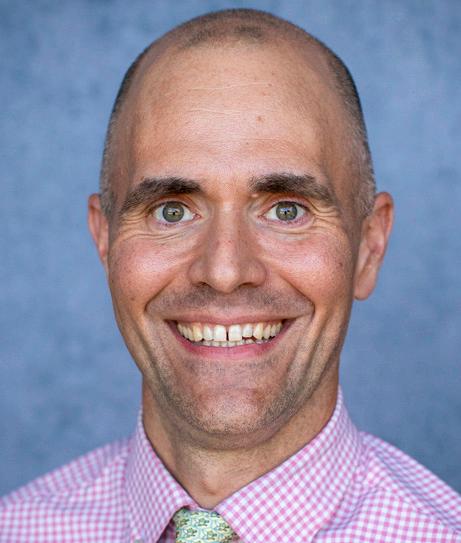
Temple earned a bachelor’s degree in history from Brown University and master’s degree in educational leadership from the Klingenstein Center, Teachers College at Columbia University. He will live on campus with his wife, Erika, and their three children.
When you think of donating to a worthy cause, you might think of food or clothing or blankets. But ambulances?
In fact, ambulances are urgently needed in Ukraine, which has been under attack by Russia since 2022. More than 600 civilian ambulances have been destroyed in the war, often expressly hunted down by Russian drones.
But thanks to Alan Himmer ’85, his wife Megan Carroll Himmer ’85, and a group of PA classmates, Ukrainians have been receiving much-needed medical supplies. And ambulances.
“The value of non sibi instilled at PA has stayed with us throughout our lives,” says Alan.
The Himmers started Ukraine Crisis Aid Group Non Sibi in 2023. The board now includes Rebecca Derderian Daniels ’85, Mark Dobrosielski ’84, John Kole ’85, Ted McEnroe ’85, and Tom Novelline ’85.
The nonprofit provides humanitarian aid to Ukrainians by collecting and sending medical supplies, first aid kits, protective gear, power backup units for hospitals and blood banks, and electronic jammers to protect ambulances from drone attacks. They work closely with a few local char-


ities in Ukraine as well as the British charity Medical Life Lines Ukraine, which purchases and repairs used ambulances. Volunteers then drive the ambulances from England to Ukraine. The Himmers’s group has assisted in donating three of the emergency medical vehicles thus far. In February, Alan drove an ambulance in a convoy to Ukraine, following in the tracks of two PA ’75 alums, Frank Lavin and Phil Fletcher,

Called a “dealmaking powerhouse” by NEXT magazine, investment banker Vennette Ho ’95 was named a 2024 “person of the year” by media company BeautyMatter. Ho is managing director and global head of beauty and personal care for Raymond James.
“ The key is to define success for yourself. That way, you can feel successful almost every single day.”
Andrew Wilson ’12 Olympic Gold Medalist—Swimming
Following the death in February of his father, Rahim Aga Khan ’90 was named the new spiritual leader of the Ismaili Muslims and head of the Aga Khan Development Network. The nonprofit organization assists with health care, housing, education, and rural economic development in 30 countries.
who donated and drove MLLU ambulances to Ukraine in 2023 and 2024.
“I have found, together with classmates, a very direct way to help. It’s like a chain of custody,” says Alan. “You can see what you bought flow all the way through to the end user. We know we are helping save lives of innocent civilians.”
Himmer has traveled to Ukraine three times and he and Megan will return to Ukraine shortly after the Class of 1985’s 40th Reunion in June to continue this vital support for those in need.
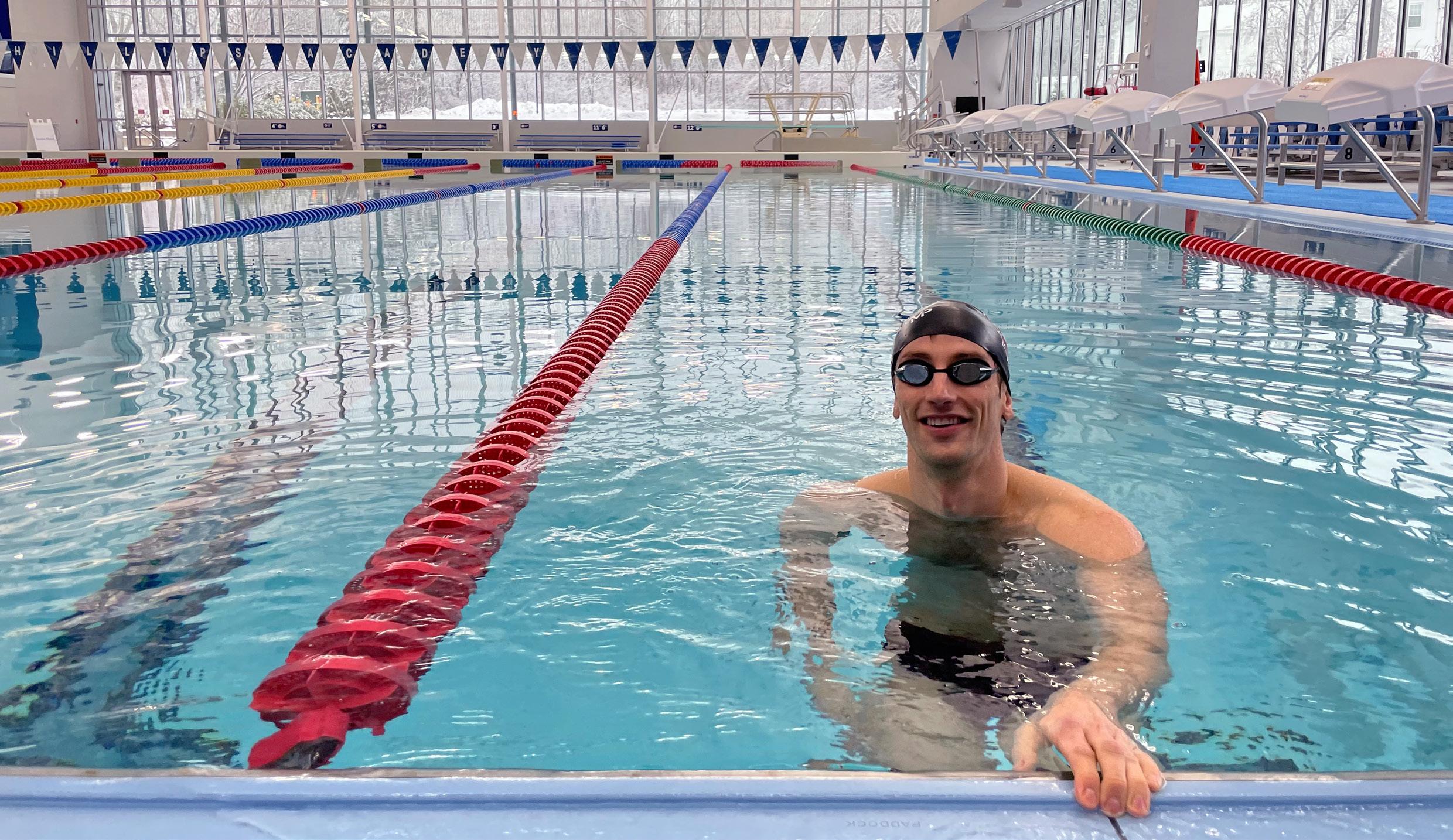
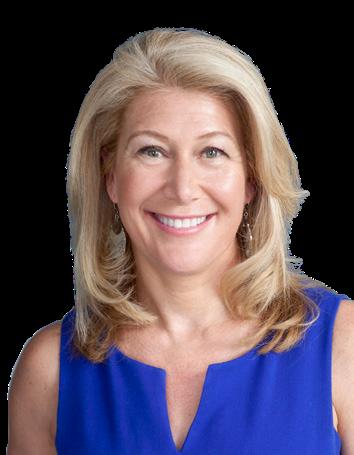
Dr. Lisa Miller Award-Winning Researcher
A psychologist and author of the New York Times bestseller The Spiritual Child Miller recently published The Awakened Brain, a book that explores the neuroscience of spirituality. Her research indicates that spiritual practices drastically improve the state of wellness for individuals, decrease the risk of addiction in teenagers, and can ward off depression.
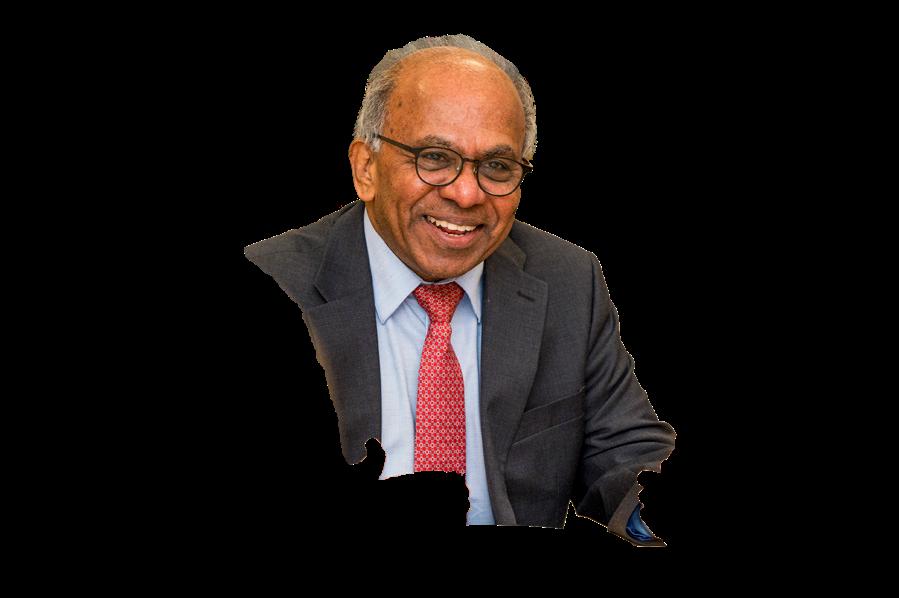
Subra Suresh Engineer, Materials Scientist
A distinguished materials scientist, engineer, entrepreneur, and recipient of the 2023 National Medal of Science, Suresh, ScD, engaged with Head of School Raynard S. Kington, MD, PhD, this past winter at a Tang Institute event. Suresh highlighted the powerful intersection of nature, humans, and machines (AI) and how this “cointelligence” could drive breakthroughs in disease monitoring, sustainability, and more.
The LA wildfires that began in January killed 29 people and destroyed more than 16,000 homes and other structures. In true non sibi fashion, Katie Schellenberg Bell ’01 took action. Working with PA’s Alumni Council, Bell coordinated efforts to bring supplies and essentials to those in need. To help, please see the evolving Amazon wish list:

In her writings and speaking engagements, Lakshmin emphasizes the importance of “real self-care.” The key to reducing stress and burnout, she says, is less about yoga and bubble baths and more about following a set of principles that involve creating boundaries, learning how to not overcommit, and treating yourself with compassion.

Erin Reddick
Artificial Intelligence Technologist Founder and CEO of ChatBlackGPT, Reddick is a certified ChatGPT expert who advocates for inclusive technology. She stresses the importance of incorporating perspectives from the Black and African American communities to address algorithmic bias, help prevent systemic inequalities, and advance social justice.
A former U.S. Army photographer, Hector Membreño-Canales has published photos in the New York Times, New Republic, and The Columbia Journalism Review, among other media. In a world saturated with quick-fix digital options, art department chair shares his approach for guiding students in the art of analog.
1
Film photography is important to teach, especially in a digitaldominant world. It’s both a fabulous vehicle to learn how light works and a practice that forces us to slow down. Students must look closely before snapping a picture.
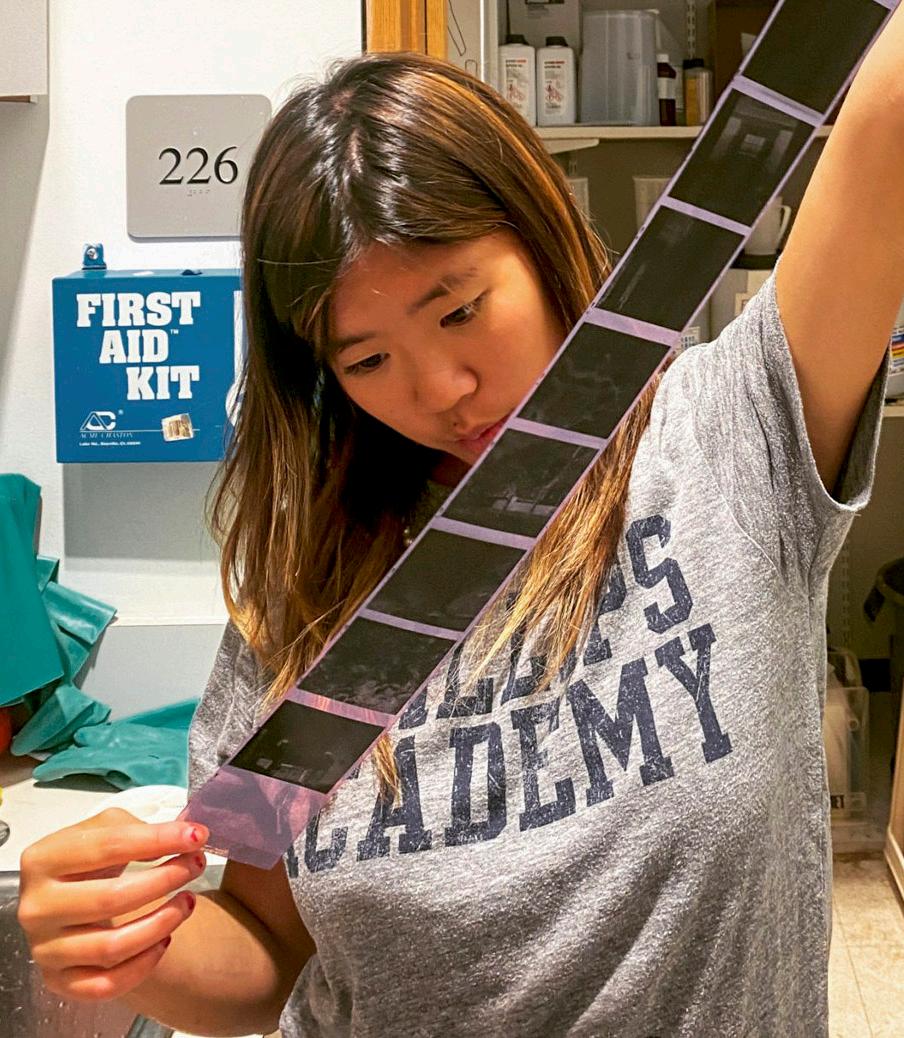
2
In digital photography class, students may take hundreds, often thousands, of photographs in 10 weeks, but in film they are limited to approximately 125 frames across five rolls of film.
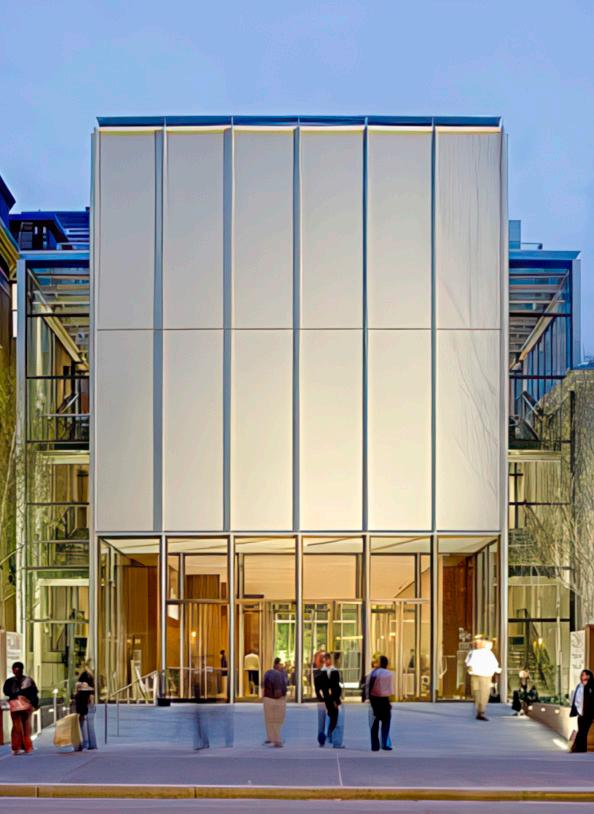
Belle da Costa Greene, one of the most prominent librarians in U.S. history, is the focus of a major exhibition at The Morgan Library & Museum in New York. Greene is the daughter of Richard T. Greener, Class of 1865, a notable voice for the rights of Black Americans in the Reconstruction period. She helped build a collection of rare books and manuscripts for her employer, J. Pierpont Morgan.
5
3
The time in the darkroom can be tedious—and even discouraging—but it can also be incredibly rewarding. It encourages students to work through the chemistry process to create what they had envisioned.
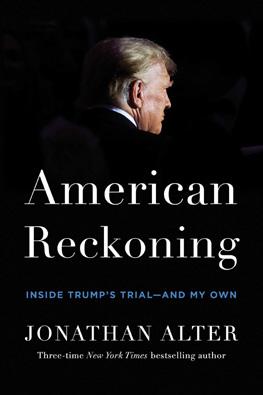
American Reckoning: Inside Trump’s Trial—and My Own JONATHAN ALTER ’75
Penguin Random House
Three-time New York Times bestselling author and presidential historian, Alter spent 23 days in the courtroom with a handful of journalists observing the first criminal trial of a president. He reveals the legal ups and downs at the dramatic felony trial of President Donald Trump and how this case affects the country and democracy.
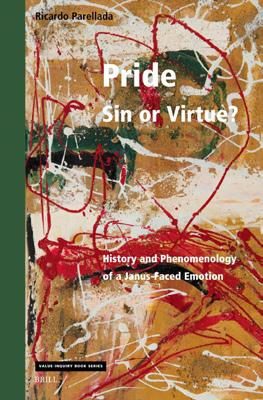
Pride—Sin or Virtue?
History and Phenomenology of a Janus-Faced Emotion
RICARDO PARELLADA ’84
Brill
Pride plays a central role in many myths and literature. In this book, Parellada defines pride and describes the duality of this emotion. He reviews historical, literary, and philosophical perspectives on pride and its relevance today, and offers a unique analysis of pride’s future in a posthuman world.
4
Teaching this course makes me a better teacher and photographer. I’m constantly troubleshooting assignments and working through camera malfunctions and darkroom challenges.
Students learn from early 18th- and 19th-century masters. They examine the invention of photography and the “flaneur” tradition of 35 mm as exemplified by the work of artists such as Henri Cartier-Bresson, Helen Levitt, Robert Frank, and many others.

Not All In: Race, Immigration, and Health Care Exclusion in the Age of Obamacare
DR. TIFFANY DENISE JOSEPH ’00
Johns Hopkins University Press
In Not All In Joseph portrays the complexities of health policy implementation and advocates for ways to better serve immigrant communities. Through a decade of research, she examines how language barriers, structural racism, and legal status shape health care access, exposing the gap between progressive policies and the reality faced by marginalized groups across the United States.


The Fading Light of Democratic Capitalism
MALCOLM S. SALTER ’58, P’90 Cambridge University Press
After describing the state of declining public trust and confidence in democratic capitalism, Salter addresses how to restore the national ideal. The author examines the impact of cronyism and restricted suffrage, and offers practical steps to promote political equality, reciprocity, and power-sharing. The book also explores the role of corporations in supporting democracy and emphasizes the need for a moral culture to rebuild public trust.
To be considered for “Bookshelf,” please send a brief summary of your recently published book to magazine@andover.edu

All is not well on O’ahu, the Big Island of Hawaii. In this suspenseful sequel to Bones of
, Detective
Wong is caught between solving a new murder and facing the consequences of an old case. As a serial killer terrorizes the islands and a reporter questions his past, Wong must confront buried secrets that could destroy his career and future.
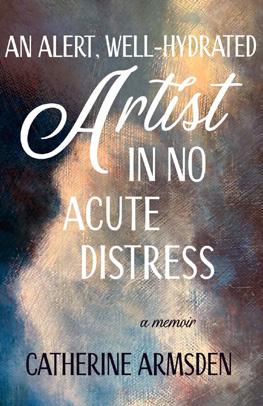
An Alert, Well-Hydrated Artist in No Acute Distress CATHERINE ARMSDEN ’73 Torchflame Books
Hadley Ferguson and Armsden, both diagnosed with Parkinson's disease, form a deep bond through an online support group. As Ferguson seeks a correct diagnosis, embarking on a painful journey across six states, the memoir explores health-care challenges, the doctor-patient relationship, and the power of empathy and creativity in adversity.
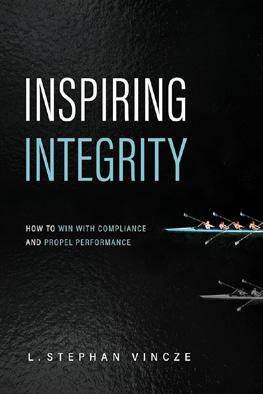
Inspiring Integrity: How to Win With Compliance and Propel Performance
L. STEPHAN VINCZE ’75
Advantage Media
With more than 25 years of business experience, Vincze offers a practical roadmap for turning compliance into a competitive edge. Inspiring Integrity presents a five-step framework to build strong compliance programs, using real-world case studies to demonstrate how ethical leadership and culture drive longterm business success and innovation.
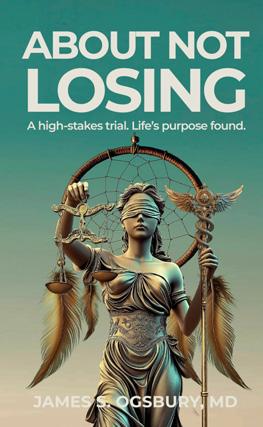
About Not Losing: A High-Stakes Trial. Life’s Purpose Found
JAMES OGSBURY III ’61
Something Or Other Publishing, LLC
This memoir recounts a high-stakes medical malpractice trial involving a patient who suffered a severe brain injury while in the hospital. Amid legal twists and a surprising settlement, the story goes beyond courtroom drama to explore personal growth, transformation, and the unexpected friendships that form among the three protagonists in the wake of a contentious battle.
(ēfəs)
BY JOSEPH P. KAHN ’67

It is possible to draw a direct line between a Wiffle Ball game outside Draper Cottage 25 years ago and a new indie film that critics from Cannes to Cambridge are calling a cinematic home run.
Three participants in that bygone PA pick-up game, ’00 classmates Brian Clark, Ashish Shetty, and Mike Tonelli, were close friends then and remain so today. All were varsity athletes at Andover (football, hockey, wrestling, baseball) and are now in their 40s, with families and grown-up jobs. Clark, an Andover resident, is a practicing gastroenterologist in Winchester, Massachusetts. Shetty (New York City) and Tonelli (Boston) work in private equity and management consulting respectively.
The three share another bond as well, thanks to a youthful filmmaking team with a winning script and a passion for making it. As executive producers of Eephus, a baseball-themed comedy with a Field of Dreams soul, Clark, Shetty, and Tonelli provided funding for a movie earning rave reviews—including a rare 100 percent rating on Rotten Tomatoes—for its blend of slapstick humor with more serious meditations on the cruel passage of time and how middle-aged men face it.

“Spaceman” during his heyday with the Boston Red Sox; and Joe Castiglione, Hall of Fame Red Sox broadcaster. Beyond its witty dialogue and faithfully staged baseball action, Eephus (the title refers to a super slow curveball designed to throw batters off-balance) offers a poignant reflection on what companionship and camaraderie mean when a nostalgia-drenched past meets an uncharted future. And when the players want badly to stay on the field, hoping to postpone the inevitable.
“At its heart, it’s about how we manage time, knowing at the end of the day the game is ending—one way or another,” observes Tonelli, during a recent conversation with his fellow alumni producers. Recalling the film’s enthusiastic reception at the Cannes Film Festival last year, he added, “Those more human themes really transcend the baseball piece of it.”
At its heart, it’s about how we manage time, knowing at the end of the day the game is ending— one way or another. ”
—Mike Tonelli ’00, Executive Producer, Eephus
Set in the 1990s, the film’s storyline involves two teams in a small-town recreational league playing in what promises to be their final game, their home field having been slated for demolition. Directed by Carson Lund, a founding member of the Los Angeles-based Omnes Films collective, Eephus features cameos by Frederick Wiseman, an award-winning documentarian; Bill Lee, the former major league pitcher who earned the nickname
The others agreed. “It’s really about how people find connection through these [baseball] leagues,” Shetty says. “People might ask, why is that even necessary in today’s productivityfocused world? But we see how a weekly game can be that profound, bringing joy to people’s lives. And that, when it ends, the transition can be awkward.”
It was Tonelli who initially brought the project to his PA pals. His aunt knew the father of one of the screenwriters, and when he asked Tonelli for help with the sales pitch to potential investors, Tonelli kept thinking about how much he loved the script and whether he might field his own funding squad.
At a birthday party for Clark’s wife, Laura Fitzgerald Clark ’00, Tonelli pitched Clark and Shetty on joining him. For

Clark, the idea evoked memories of his Andover days, when he and Tonelli, both day students, would drive around in the latter’s Jeep, embarking on yet another adventure together. “With Mike, I never worried about the destination,” Clark says with a broad smile. “I just enjoyed the journey.”
Shetty was all in, too, and not only owing to Tonelli’s powers of persuasion. His resume includes a stint as a stand-up comic in New York and an executive producer’s credit on another movie, Marlowe, a 2022 Liam Neeson crime drama. In his view, the worlds of entertainment and private equity didn’t seem so far apart.
“Putting that all together, plus getting to partner with Mike and Brian while being rather bored during Covid, it’s been a great ride for all those reasons,” he says.
The principals behind Omnes Films, who met at Emerson College in the early 2000s, focus on projects that explore “the many forms of cultural decay in the 21st century,” according to the company’s website. Eephus is being distributed by Music Box Films, based in Chicago.
Clark, Tonelli, and Shetty initially figured on being part of a larger funding group. As the project developed, though, and joined by a college friend of Clark’s, they gravitated toward financing it all by themselves. That way, said Tonelli, “Perhaps we could have more influence on getting it done.”
From the outset, Tonelli warned the others the best outcome might be a writeoff on their taxes. Win or lose, they would at least get to attend a prestigious film festival. (So far, they’ve been to three and counting). Even
better, they would be helping a group of ambitious young filmmakers realize their dream.
That prompted another Andover memory—a movie Tonelli and Clark made for their senior year art class, with Shetty cast in a cameo role.
“That was our first effort at art,” recalls Clark with a laugh.
“This one is certainly better than that.”
Eephus was filmed on location in Douglas, Massachusetts, in October 2022. During shooting, Clark dropped by with his wife and four sons to meet the cast and crew. Otherwise, the three investors tracked the film’s progress largely from afar. Then came its debut at Cannes and the first real indication they might have a hit on their hands.
Eephus also screened at last fall’s New York Film Festival prior to its March opening in Boston, New York, LA, Chicago, and other major markets. Critical reaction has ranged from the warmly positive to the positively giddy. “The best sports movie in years,” gushed one reviewer. Penned another, “A wry and lovely baseball movie that pitches slowballs of quiet wisdom.”
That’s been gratifying for Clark, Shetty, and Tonelli to hear, and they’ve already been approached about backing other projects. But while that door remains open, they say for now they’re content to enjoy the Eephus ride. Plus, there’s the satisfaction of having reached another goal of theirs.
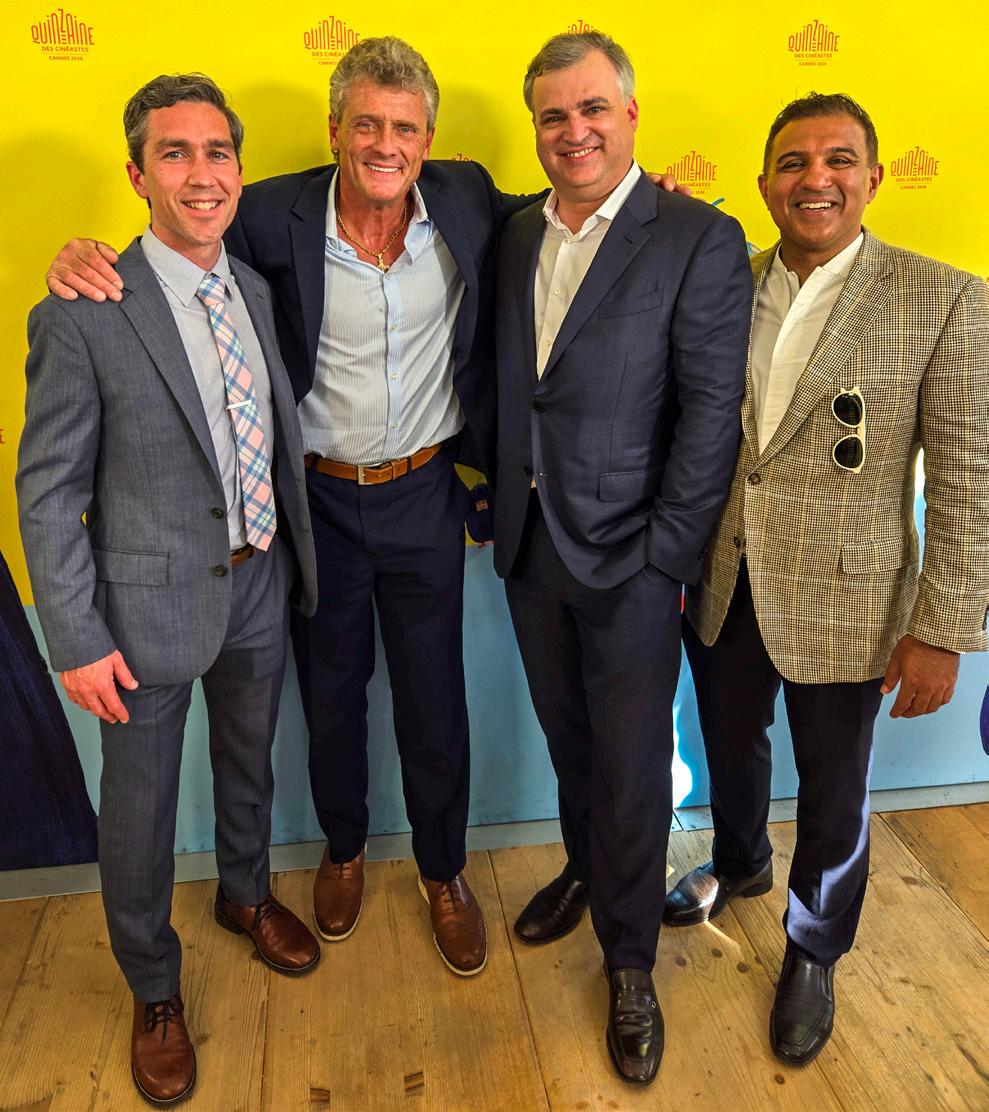
“We’ve all donated to Andover over time, partly because of our belief in paying it forward,” says Tonelli. “This production team was looking for someone to believe in them. Whether it works out for us or not, we’ve paid something forward.”

Four retiring faculty have inspired students for generations with their expertise, enthusiasm, and care.
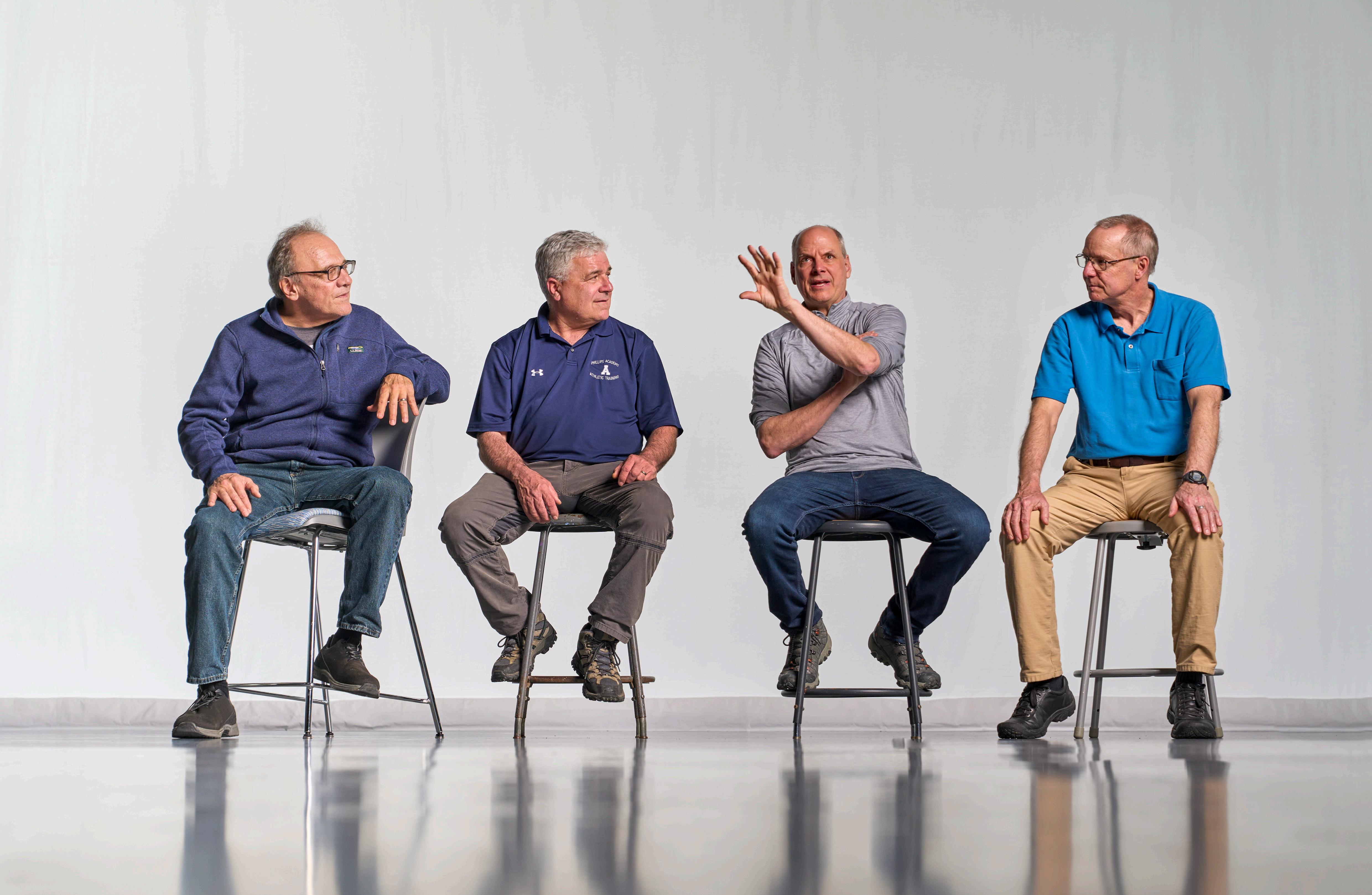
BY NANCY HITCHCOCK
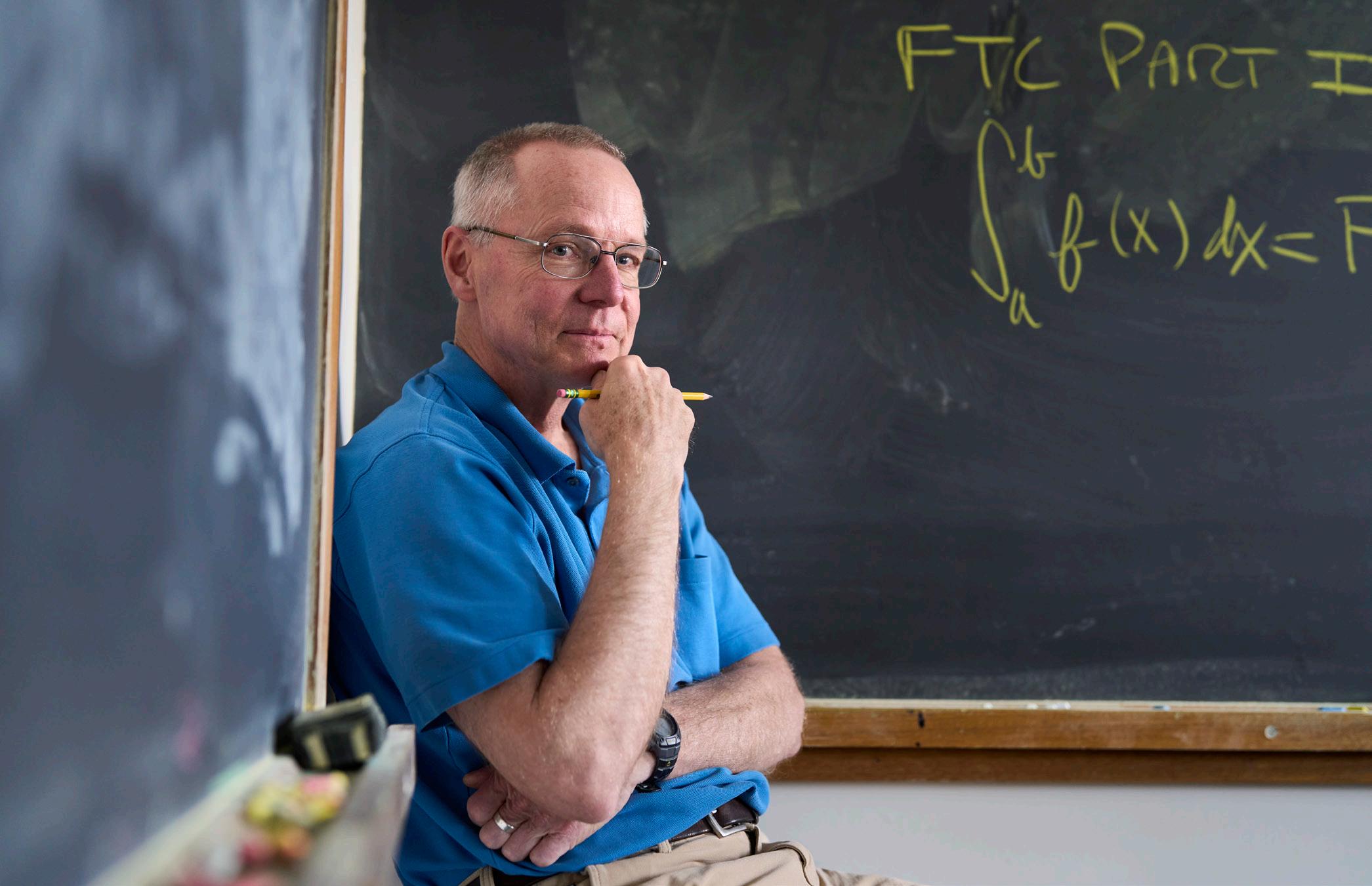
For 21 years, Pat Farrell P’08 devoted himself to teaching mathematics, statistics, and computer science—not just as a job, but as a calling. And his students felt it. “Your love of math was contagious,” said Richie Zhang ’16.
One of Farrell’s signature phrases, “Life is like a sine curve, with its ups and downs,” has become one of Zhang’s cherished mottoes, a testament to Farrell’s passion for sharing the joy of math.
When Farrell began teaching, he quickly realized the power beyond solving equations. “When I proved the quadratic formula to students, I realized that no one ever explained to me why math worked the way it did. This was a game-changer,” he says.
His fascination with the “why” became central to Farrell’s teaching approach. From explaining probability in everyday decisions to how compound interest affects savings, he loved showing students the real-world value of math. In Math 380, his favorite class, he witnessed “students rise to the challenge” of increasingly difficult problems.
“You teach in a way that turns mathematics into a fun journey of exploration . . . and you give us some of the most thought-provoking problems that are actually incredibly fun and rewarding,”
said Alice He ’25 in a handwritten thank you note.
Farrell’s journey to Phillips Academy began when his daughter, Kate ’08, chose to apply. In his research, he found himself drawn to Andover’s Mathematics & Science for Minority Students summer program—better known as (MS)2—where he started teaching in 2004. “I realized that this is a school trying to do something special,” he says.
Through the years, students have appreciated Farrell’s calm, kind, and nurturing approach. “Your BC Calculus class was my favorite and inspired me to become an engineer,” said Caitlin Clancy ’13.
Farrell made lasting contributions beyond the classroom as well, including coaching track for 17 years, serving as a faculty leader on the Spring Break
community engagement trip to South Carolina from 2005 to 2010, mathematics department chair from 2010 to 2013, and dean of faculty from 2013 to 2019. Farrell ran Johnson House for eight years with his wife, Karen, and served on key committees, such as the Andover Anti-Racism Task Force and Senior Administrative Council and was interim director of Summer Session in 2024. In retirement, Farrell looks forward to spending more time outdoors doing everything from hiking to clearing walking trails. One aspiration is to travel to Philadelphia to visit his son, Dan, who works as a software engineer for the Department of Homeland Security, and to Rio de Janeiro, where his daughter is teaching math. And he will continue to share his love of mathematics, whether it be tutoring or part-time teaching appointments.
I believe in creating a community that reflects the world we want to see. As educators, we shape the
future by connecting with students and showing kindness.”
As a teacher, mentor, coach, and friend, Lou Bernieri P’96, ’10, has had a remarkable Andover tenure. Known for his unwavering passion for the power of the written word, he leaves an indelible mark on generations of students, writers, and educators.
Bernieri's journey at Andover began in the late 1970s as an English instructor and house counselor in Foxcroft Hall. Quickly, he became a beloved presence, known for his infectious enthusiasm, deep intellect, and exceptional ability to connect with students.
His roles as a teacher and department chair (1986–1988) were just the beginning of a career dedicated to shaping young minds. It was his founding of Andover Bread Loaf (ABL) that truly cemented his legacy.
ABL, launched in 1987, began as a teacher program but quickly expanded into a transformative writing initiative
for students. Under Bernieri’s guidance, ABL became a model for empowering young writers, particularly in underresourced communities like nearby Lawrence, Massachusetts. In ABL’s Writing Leader Program, students not only honed their writing skills but also became community leaders, running workshops, organizing conferences, and even presenting at prestigious institutions such as the Aspen Institute and the National Council of Teachers of English.
Family Literacy Nights, an outgrowth of ABL, started in Lawrence and have since spread to places like Navajo Nation, New Orleans, India, and Pakistan.
“Whole families, from 2-year-olds to grandmothers, sit together and write poetry and share poetry together,” enthuses Bernieri. “It’s amazing to see families share their work among themselves and then at a mic in front of 100 people. It’s really electric.”
The most important things a teacher can do are, first and foremost, make sure students know you care about them as people, not just students, and second, inculcate a love of the discipline— reading, writing, talking about books and ideas.”
Bernieri was also a force in athletics. Coaching football, indoor track, and outdoor track for many years, he instilled discipline and confidence in his athletes, many of whom still recall his encouragement and fiery spirit.
“He was an incredibly inspiring coach,” said Billy Kheel ’92. “On the field he was intense and passionate, but off the field he was an artistic soul, spreading creativity across the Andover campus and beyond.”
Whether reciting Theodore Roethke’s poetry on the football field or reading Maya Angelou in the sanctuary late at night, Bernieri made literature come alive and constantly challenged traditional education norms. “Lou was the rare mix of intellectual and jock,” David Daskal ’79 recalled. “He encouraged us to take the hardest courses, and on the football field his passion and enthusiasm were infectious.”
As Bernieri steps into retirement, his influence remains woven into the lives of those he taught and mentored. From the classrooms of Andover to the community of Lawrence and well beyond, his impact is enduring. “Lou has not only touched many lives but also many hearts,” said Graham Anthony ’82.
For Bernieri, teaching was never just about lessons—it was about transformation. And for that, his endeavors have empowered thousands of aspiring writers and poets worldwide.
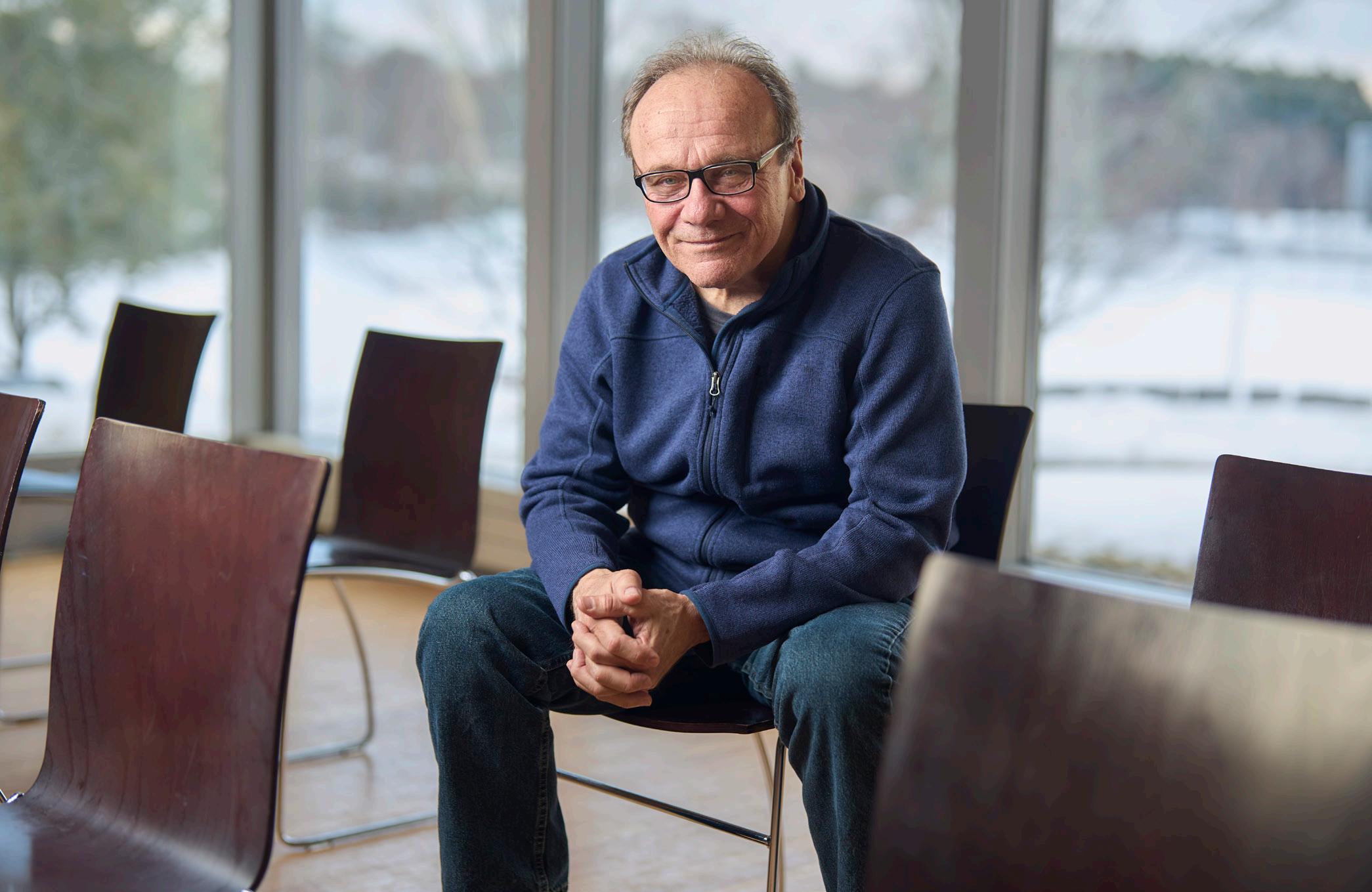

Whether at the rink, on the playing fields, or chatting on campus pathways, head athletic trainer Mike Kuta P’12 has spent 44 years not just taking care of students—but truly caring for them. He often quotes Theodore Roosevelt: “They don’t care how much you know until they know how much you care.”
From sprained ankles in volleyball to ACL tears in football, Kuta has tended to countless injuries with patience and a reassuring smile. But his impact extends far beyond athletic training. His support and compassion have left a lasting impression on generations of student-athletes.
Tom Hamel ’10 reflects, “I am so grateful for his tireless efforts to keep us healthy while also educating us for life beyond Andover. His leadership— encouraging, supportive, yet demanding our best—has stayed with me.”
Alex Apgar ’17 echoes this sentiment, calling Kuta’s “empathy, attention to detail, and ceaseless smile” hallmarks of his character.
For Andrew Smith ’87, MD, Kuta was “a key figure in shaping my life. His presence on the sideline showed me the power of a trainer who truly cares—and it helped guide me to a career in sports medicine.”
I’m
so proud of how well we work as an athletic training team and as a part of the health-care delivery system at Andover. We take a comprehensive approach to treating students. The focus is all about the kids.”
Kuta’s journey at Phillips Academy began in 1981 as a Northeastern co-op student, shadowing and assisting athletics department personnel; he returned as a teaching fellow in 1983 when athletic training was still an emerging field. Over four decades, he not only grew with the profession but also helped shape the department at Andover. What started as a three-person operation in a small room in Borden Gym has expanded into a five-trainer team working across four state-of-theart training rooms, including one at the ice rink, where Kuta spent many winter afternoons.
“What I love about athletic training is the immediate impact on our student-athletes,” says Kuta. “Students can measure their progress daily, and for long-term injuries, we help them set short-term goals so that kids can mark
“Working with clay is an addictive process,” Thayer Zaeder ’83, P’17, tells his students in Advanced Ceramics 502 as they observe, with surprise and delight, their freshly fired pieces—from tiny vases to colorful teapots.
The love of art that has guided Zaeder during his 27 years of teaching was first kindled when he was a student at Phillips Academy.
“I took as much art as I could,” says Zaeder, “and I got very interested in clay. I was a shy kid, so clay was great. It was a place to find a focus and use my hands.”
progress and stay well-motivated. We’re taking care of the whole athlete.”
Beyond athletic training, Kuta has worn many hats—athletics director (2007–2014), house counselor, day student advisor, and longtime director of Summer Session’s activity program as well as coordinator of Andover’s summer soccer camp. He has also led the school’s biannual blood drive for 40 years and played a vital role in Commencement planning, each year unrolling his hand-drawn map of the Commencement procession.
As he steps into retirement, Kuta looks forward to lots of flyfishing and summers at his Maine lake home with wife Susan and their three adult children—Joe ’12, Jenn, and John. Kuta’s legacy of care will live on in the countless students he has influenced.
Following graduation, Zaeder pursued his passion for ceramics, earning BFA and MFA degrees. In 1987, he returned to his high school alma mater as a teaching fellow—and met his wife, Eva. After a six-year stint in Seattle, where Zaeder was a ceramicist, the couple moved back East and settled in at PA. Zaeder’s connection to Andover is unique, shaped by his many Academy identities: faculty child, student, instructor, coach, and parent. His father, Rev. Philip Zaeder P’79, ’83, served as PA’s Protestant chaplain and later as an English teacher and dean of faculty; his mother, Sylvia Thayer ’54, P’79, ’83, was a cluster dean. For one special year, Zaeder and his dad taught together before the latter retired in 2000. In addition to instructing art and helping raise his children, Sylvia and Eliot ’17, Zaeder was a cycling coach for 22 years, a house counselor for 15 years, and chair of the art department.
“I feel like I got a really broad exposure to all the nooks and crannies of Andover,” he says.
In the bright basement rooms of Benner House, Zaeder cultivated a relaxing space for students, often playing reggae music while conversing over clay. “I try to hold students to high standards, but I try not to make art stressful,” he says. “I think that would be a mistake if the studio caused any kind of anxiety.”
Over the years, students have called Benner House “an oasis,” with many describing Zaeder as encouraging, kind, funny, and inspirational.
“Mr. Zaeder is incredibly skilled,” shared Aleisha Roberts ’22. “I remember watching him in awe, appreciating
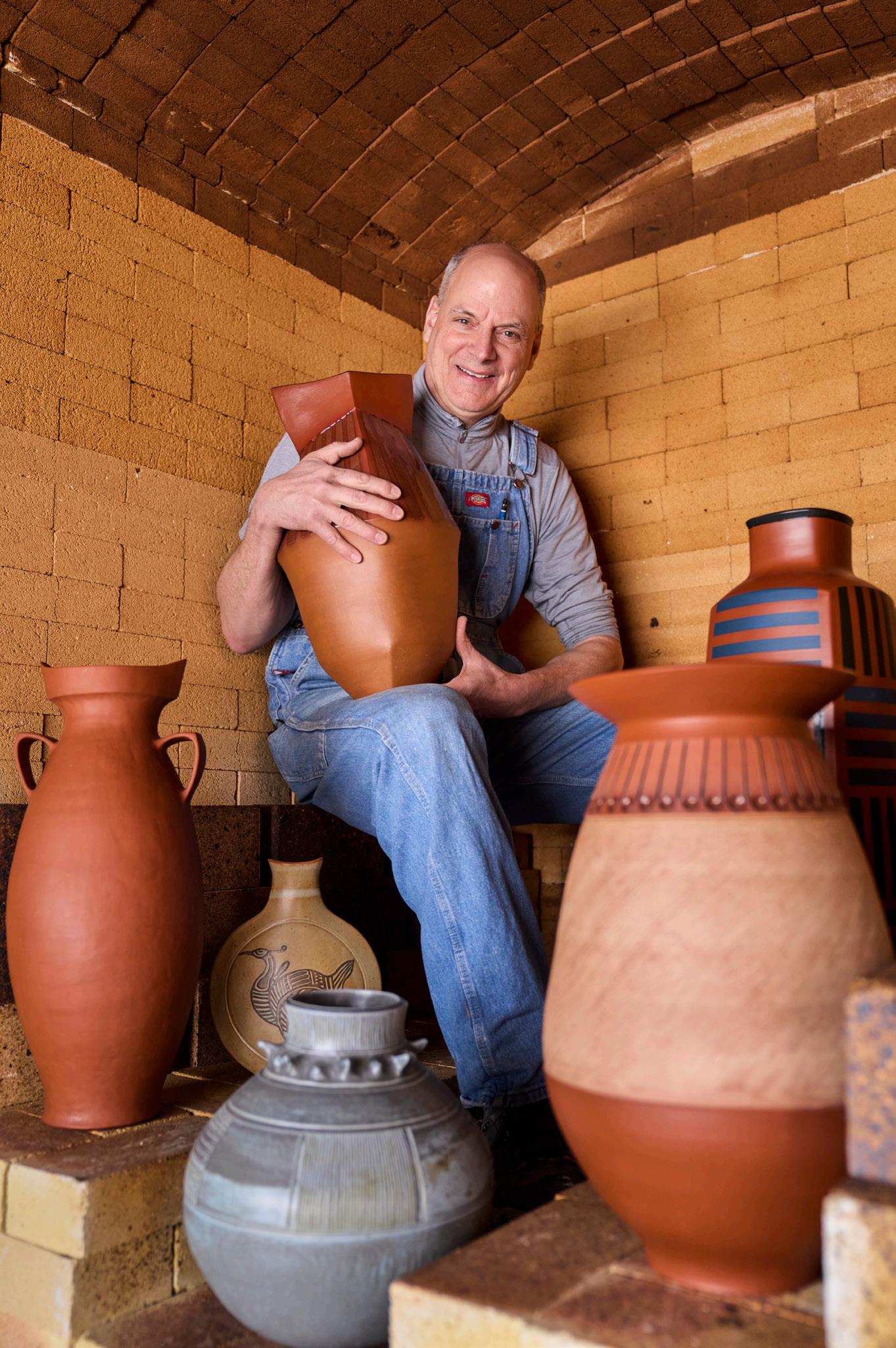
Students always surprise me. The fun part of teaching is seeing the freedom with which they’ll explore an idea. They’re uninhibited in their creation. Anything is possible.”
how time with and love for a craft can turn ordinary people into magicians.”
Alexandra Kim ’17 is grateful for his mentorship. “I took a course of his every semester I could and cherished all the hours I spent in peaceful creativity at Benner House,” she said. “Thanks to his encouragement, I am a ceramic artist
today and even show my art.” With a studio waiting in Maine, Zaeder is excited to begin retirement and focus on his art. “Having worked with students for nearly 30 years and watched them and all their creative energy, that’s put a lot of gas in my tank in terms of exploring my own clay work.”
By Rita Savard
The strings set the tone. Slow and reflective, like the first light of day illuminating students’ path to class nearly 250 years ago. Delicate, sustained notes create a sense of reverence that fills the room. Gradually, swelling harmonies emerge. Lush, sweeping violins and resonant cellos evoke the passage of time. As the piece progresses, the tempo quickens, introducing an energy that bridges tradition and innovation.
The music in composer Quinn Mason’s American Reflection written for the Phillips Academy orchestras and performed for the first time in front of a captivated audience at Falls Music Center in late February—embodies the spir-
it of young musicians breathing new life into classical music in the 21st century.
The room is alive, and students are pulling the audience into something bigger than sound. It’s movement. It’s history. It’s the future, playing out in real time.
The performance is unlike any the Department of Music has ever hosted, and not just because of the brilliance of the guest composer, but also because until now, an event like this wasn’t within reach on campus. Designed for music from the ground up, with its state-of-the-art concert hall, practice spaces, recording studio, and electronic music lab, the new Falls Music Center has redefined what is possible at Andover.
“Here, music isn’t just played—it’s explored and reimagined,” says Abbey Siegfried, chair of the music department on the George H. Billings ’68 Foundation. “Whether you’re a seasoned musician or someone just discovering your first notes, this space invites all students to listen, wonder, and experiment with new creative worlds.”
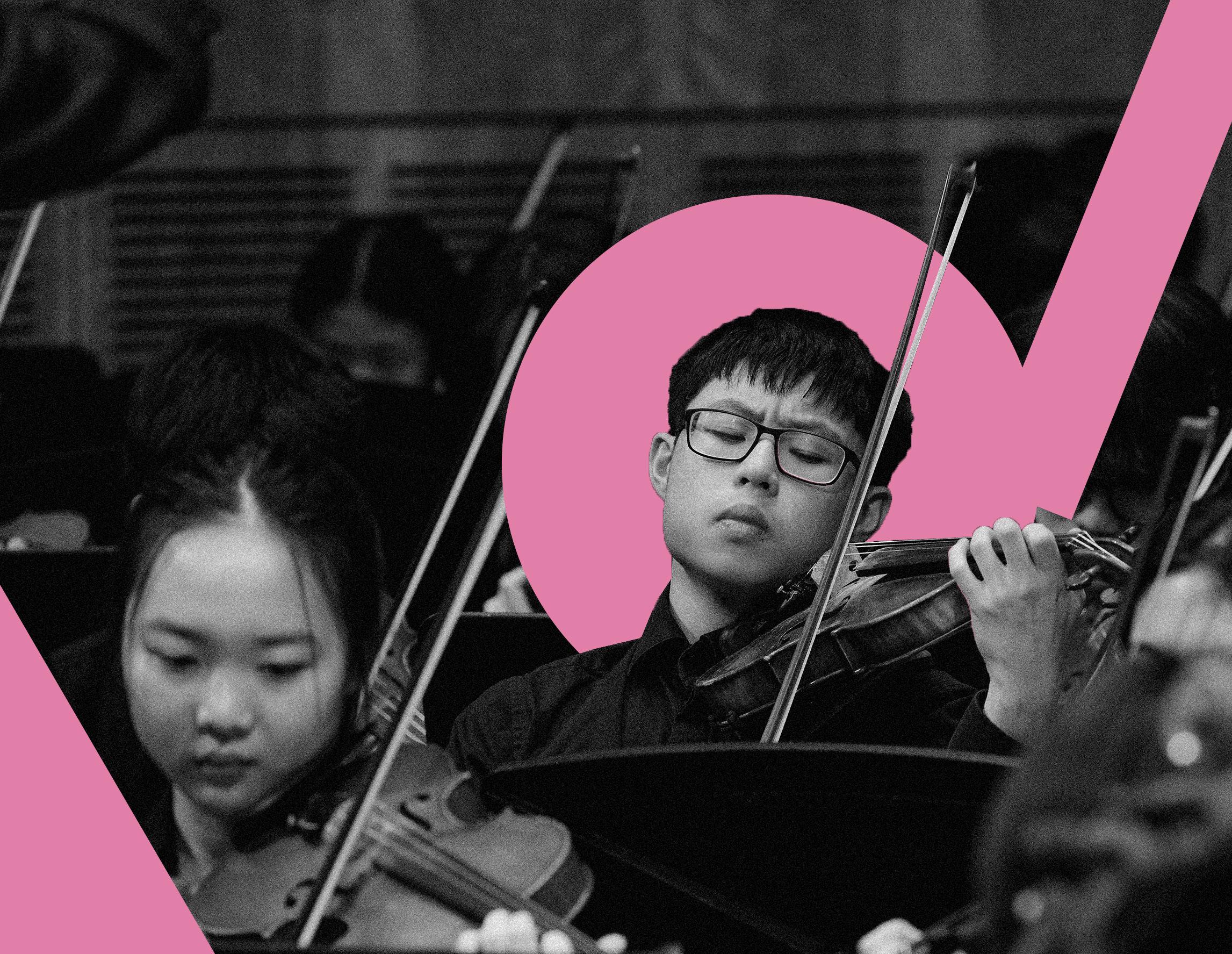
Hometown: Katy, TX
QWhat do you find most rewarding about creating with music?
The potential for passing on inspiration. I would like to positively influence the community around me by bringing my background and experience in the guzheng and inspiring someone—like the 7-yearold me—to pursue what they are passionate about.
QWhat is a song or piece of music everyone should listen to, and why?
The Hamilton soundtrack. It’s interesting and educational and fun. You get good music with a slice of American history!

Music education has long been an integral part of the Academy culture and curriculum. But for decades, Andover’s music scene thrived in spaces that often felt hidden—tucked away in Graves Hall, a former science building that the robust music program had long outgrown, or in the basement of Cochran Chapel.
Just two days after Falls Music Center opened in January, the PA and Cornell University orchestras played side by side in the John Barry Performance Hall. For audiences listening to music here for the first time, it wasn’t hard to be swept up by a tide of melody surging through a space built to cradle sound.
“You can hear the accuracy of every note played,” says cellist Matteo Horvat ’25. “It’s pretty incredible to be able to fill such a large room with your instrument.”
From the earliest performances to the constant rhythm of students flowing through the GershwinGodowsky Court—dropping into comfy couches for marathon conversations, meet-ups, or study sessions—this new home for music has become an unofficial coffeehouse of sorts.
“This space invites people to music,” says Amy Falls ’82, P ’19, ’21, president of the Board of Trustees and the building’s namesake. “It makes music more accessible—less something you have to qualify for and more something to experience and enjoy.”
As a student at Andover, Falls tried out for choir but didn’t make it.
“Back then, it felt like you really had to be a ‘music kid’ to do music,” Falls explains. “Kids are hungry for hangout spaces. So, let’s say some kids go hang out there, and maybe they are not playing music but hear someone playing piano and they go, ‘You know what? Maybe I’ll take piano lessons.’ For me, this building does both. It lifts our talent, putting them front and center, and it creates a culture where music is truly for everyone—a place where anyone can stop, listen, and maybe even join in.”
At Andover, music isn’t just something students study, it’s something they create, shape, and push forward. As the curtain pulls back on Falls Music Center, the music department is striking a new chord—literally. Thanks to the support of an Abbot Academy Fund grant, chair Abbey Siegfried
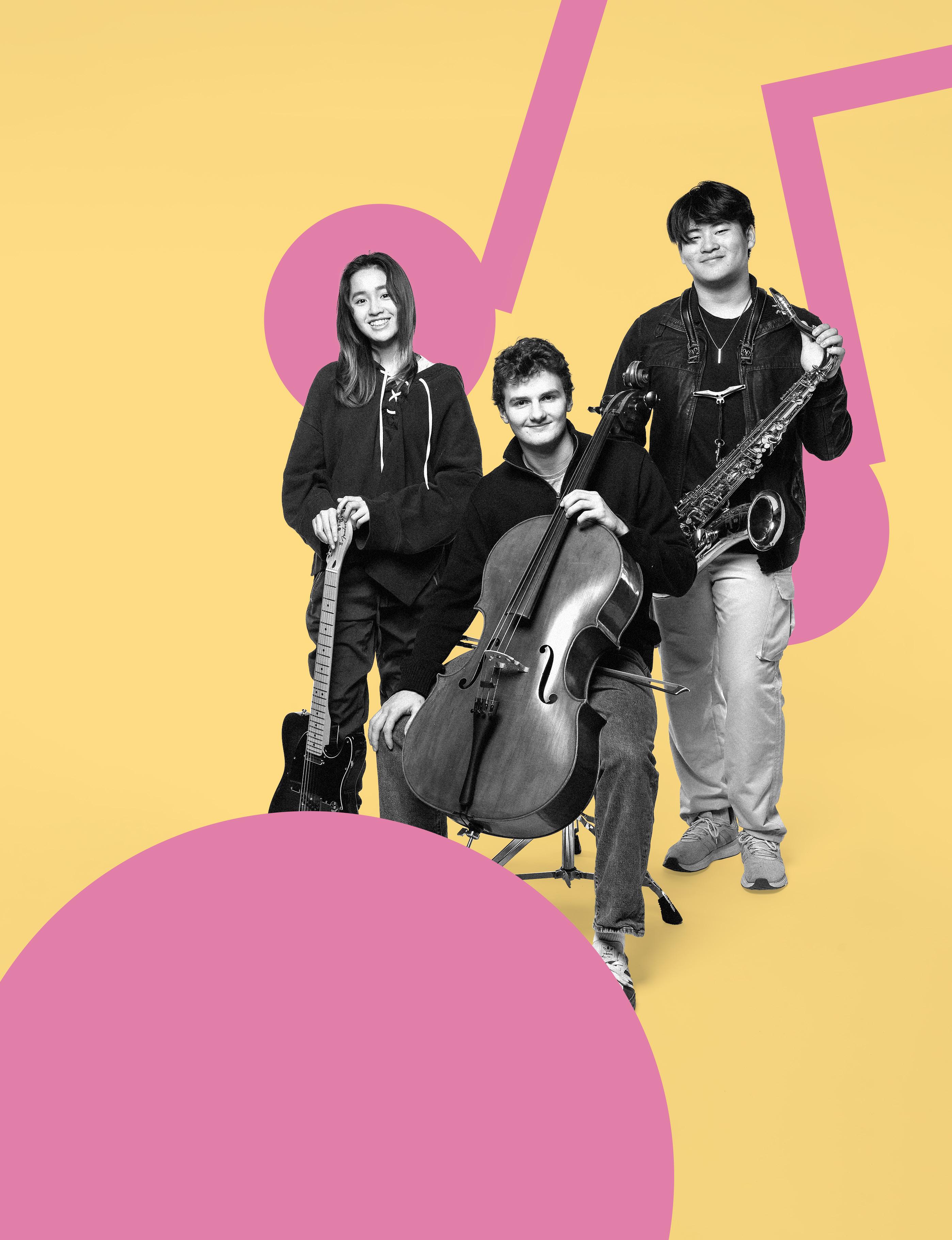
Hometown: Boston, MA
QWhat drew you to playing music?
I started playing classical music when I was 4 because I wanted to be like my sisters, who both took piano lessons. I played violin and, at age 12, discovered I loved making original music, so I started songwriting and studying jazz. Things really clicked when I began collaborating and sharing music with others. I really must thank Andover for bringing me together with people who inspire me with their love for creating music.
Hometown: London, UK
QWhat is your favorite thing about playing music at Andover?
It’s been so supportive of my musical endeavors. Lower year, a friend and I came up with an idea to host a dance called “The Bassment” that was all about bringing students together and connecting through music. It has become an annual event. I’ve also been able to learn more about music production and, this spring, plan to do an independent study on music sampling.
Hometown: Weston, MA
QHow will Falls Music Center change the Andover experience?
It’s built to give us the best possible opportunity to pursue our aspirations. Just this term alone, I’ve begun to produce music in the recording studio. Every day I get to walk in and find something cool to do.
In the spring of 1991, with George Washington Hall under construction and no proper venue in sight, William Thomas made a bold decision—he was going to stage a full Mozart opera. He had seven weeks to pull it off, in Italian, with an entirely student cast.
“We had to improvise,” laughs Faculty Emeritus Christopher Walter P ’01, ’03, who met Thomas, a beloved instructor and chair of music, in 1977, when Walter initially came to Andover to teach French. “He got performance space for the orchestra in Doherty Middle School. Was the end result perfect? No. But William had big vision, and at the heart of that was giving students latitude and resources so they could dream. It was astonishing that he even saw this big plan to completion—and I guarantee that every student who was there still remembers the experience.”
Thomas joined Andover’s music department in 1975, where he worked as an instructor and department chair until 1989 and was director of
performance from 1989 to 2008. For those who knew him, he wasn’t just a teacher or a composer; he was a conductor of possibility and a believer in the power of music to change lives.
“He worked pieces like Mozart’s Requiem past your brain, past your blood, and into your bones,” recalls Lilli Lewis ’93, a professional musician based in New Orleans. “He was joy and sass and totally demanding—but he made miracles through music.”
A pioneer at the Academy, Thomas was instrumental in making music part of the curriculum and creating new and exciting opportunities for students, including establishing the gospel choir and chamber music programs, founding Andover’s Black Arts Weekend, which highlights the artistry of the Black community and the importance of diversity and inclusion, and leading annual concert tours to numerous global destinations for choir and orchestra students.
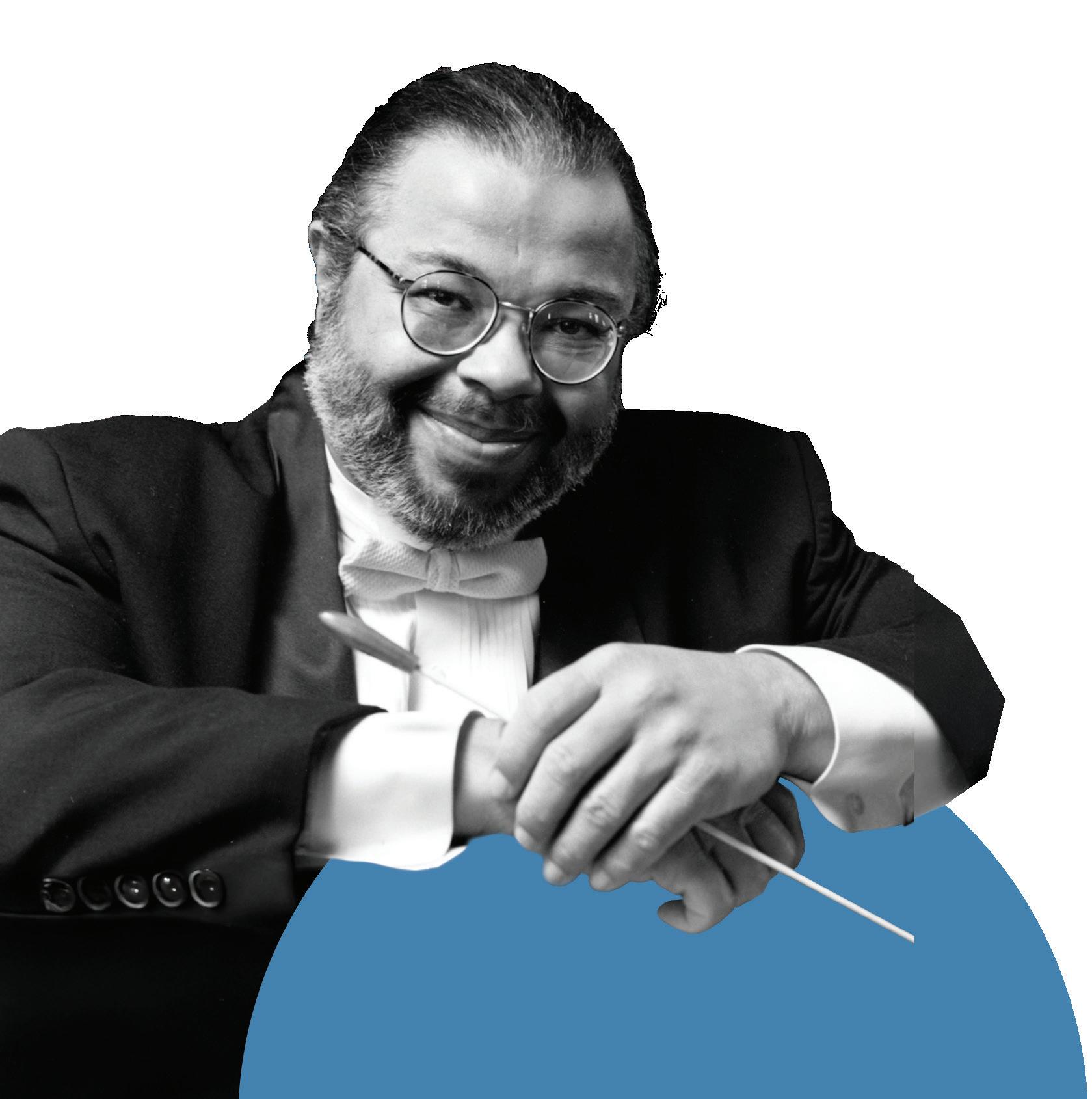
“When William started the orchestra, it consisted of a dozen students. There were four or five violins, now there are 50,” Walter says. “An exceptional piece of his legacy was introducing a music requirement for all students. Not only did it expand the number of faculty who were available to students, it impacts every student at Andover in unique and personal ways.”
After taking the required music course last term, Hannah Jung ’28 discovered a starting place to more critical listening.
“We analyzed the song “Somewhere Over the Rainbow” and why it has remained a popular tune even many decades later,” Jung says. “What sounded like a simple melody at first actually has layers upon layers of details and purposeful motives. From specific rhythmic patterns in the English language—think Shakespeare’s iambic pentameter—to underlying chord progressions in some of the greatest pop hits of our time, music surrounds us always and helps us communicate and portray feelings and emotions.”
Thomas died in 2013 in his hometown of Lexington, Kentucky. The William Thomas classroom is strategically located next to the Christopher Walter practice studio in Falls Music Center, symbolizing the music program legends’ decadeslong relationship as colleagues and friends.
was able to launch a three-year commissioning cycle for string orchestra called New Music for a New Era. The initiative celebrates Andover’s musical evolution, champions diverse composers, and brings fresh, dynamic pieces to students.
“Last year, we kicked things off in a meaningful way by commissioning work from Abbot alumna Gwyneth Walker ’64, honoring both the legacy of Abbot and 50 years of coeducation,” Siegfried says. “This year we’re keeping the momentum going with a new commission from Quinn Mason, a rising star in classical music.”
Mason’s journey in music started at age 10 in public school. He saw his first live classical music concert on a field trip to see the Dallas Symphony Orchestra play Peter and the Wolf , with Grammy Award–winning artist Sting narrating. Around the same time, he began learning piano at school and became hyper focused on “creating music from 12 notes from silence and trying to tell a story with it.”
Now 28, the composer is being commissioned by orchestras all over the world, and his meteoric rise has critics hailing him as classical music’s next superstar. Standing with the Academy orchestras inside Falls Music Center in February, Mason tells students, “I was thrilled and excited when this commission came in.”
“The world comes to Andover” is an expression used to describe the extensive array of guests who visit the school every year and share perspectives and artistry representing all corners of the globe. Often this exchange of creativity is marked by classroom conversations and collaborations with faculty and students.
Mason’s visit resulted in a new composition written for Andover and performed by students, on campus and abroad—the Academy chamber orchestra performed the piece in London in March.
“Upon learning that this was one of the oldest high schools in the United States, established in 1778—what a mind-blowing thought, all those generations of students having been educated here—I started thinking about all the different students over time, going out and making a difference in the world,” explains Mason. “I wanted to pay tribute to that legacy but also acknowledge the present and the future and a new American sound of classical music here in the 21st century.”
The commissions, Siegfried adds, aren’t just about creating new music, they’re also about creating new opportunities.
“Each composer’s residency brings invaluable experiences for students,” Siegfried says. “It gives them a front-row seat to the creative process, inspiring young musicians and expanding their understanding of contemporary composition. Through these partnerships, we’re
“Music speaks to human beings in a way that is very powerful. It is a language that crosses barriers.”
AMY FALLS , 82

Hometown: Columbia, SC
Amina started singing for fun when she was 3, joined a choir at 7, and began singing in operas and other shows at 10. She’s a member of Fidelio, co-head of the Keynote a cappella group, and lead singer in the Academy jazz band, Goose and Moose.
QHow can music education complement a student’s academic pursuits?
Learning how to collaborate with others is a valuable skill in everyday life. Critical listening and thinking about how to interpret music provides greater understanding of emotions, empathy, and connection. It can teach us so much more about ourselves and the world we live in.
Micheal fell in love with singing as a preschooler, watching Mickey Mouse Clubhouse. In third grade he started appearing in community musicals, and during the pandemic he became “obsessive” about constructing melodies. By the end of eighth grade, at age 13, he wrote and recorded his first album.
QWhat is your favorite thing about playing music at Andover?
The diversity here is evident in every aspect of campus, especially the range of talent among students. I have been lucky in Fidelio to learn songs in other languages, taught by my own classmates. Similarly, if a piece ever needs something extra—a horn, a harp, or harmonica—there is always someone who can help out.
Hometown: Andover, MA
Q
What do you find most rewarding about creating with music?
Taking notes on a page and transforming them into something alive—something that can convey my deepest emotions, tell wordless stories, or just simply bring joy to an audience. I love how music lets me communicate in a way words can’t.

Hometown:Arlington,VA
Cameron didn’t have to travel far for musical inspiration. His dad, Adam, who plays piano, bass, and various world percussion instruments introduced him to a variety of musicians and playing styles early on, leading to drum lessons at age 9. Cameron plays in the wind ensemble, jazz band, The Repercussions, Goose and Moose, and Handle with Care.
QHow will Falls Music Center change the Andover experience?
It will encourage more students to try out music for the first time. When it first opened, everyone on campus was talking about it. I saw many friends of mine, who had never played an instrument, walk over and just mess around on a piano in one of the practice rooms.

Hometown: Andover, MA
Athena began writing down small compositions at the age of 4. During her first All-School Meeting, she recalls being awestruck at hearing Dr. Abbey Siegfried play the two-manual, 27-stop tracker organ in Cochran Chapel’s loft. She immediately started taking organ lessons. Her original orchestra composition, “Origine,” inspired by the Phillips Academy motto Finis origine pendet (The end depends on the beginning), will be performed live in the Falls Music Center performance hall this spring.
QWhat song do you think everybody should listen to at least once?
I am a huge fan of the piece “Short Ride in a Fast Machine” by John Adams. That specific piece has influenced me a lot in terms of writing textures and harmonies. In my opinion, minimalist music is often underappreciated in modern classical music. When listening, make sure to pay special attention to the woodblock and the building brass melody at the end.
also amplifying fresh voices and giving students access to cutting-edge repertoire tailored for their level.”
The music department’s initiative comes at a time when students have a purpose-built music space with the technology available to activate limitless potential.
“The response has been overwhelming,” Siegfried says. “More students than ever are signing up for lessons, joining ensembles, and finding new ways to engage with music. We’re planting seeds that will grow for years to come.”
Walk through the doors of Falls Music Center and you feel it immediately. This is a place made for music. Natural light pours through large windows where students gather—practicing their instruments, studying, connecting, and creating. It’s not just the building that is new. It’s a new way of experiencing community at Andover.
“This is the kind of place musicians dream about,” says Declan Siefkas, the Academy’s new director of music technology, who first stepped inside Falls Music Center in November. “To see a building made for music from the ground up is an experience that almost nobody gets. Maybe in some fancy concert halls—but in a school? It’s pretty incredible.”
Designed for the future, from the retractable seating in the main performance hall to adjustable acoustic banners in the recording studio, every element is intentional.
“There are no parallel walls,” Siefkas says. “That prevents flutter echoes. It’s details like that, along with sound-absorbing materials, that make the space perfect for music in a way a normal building could never be.”
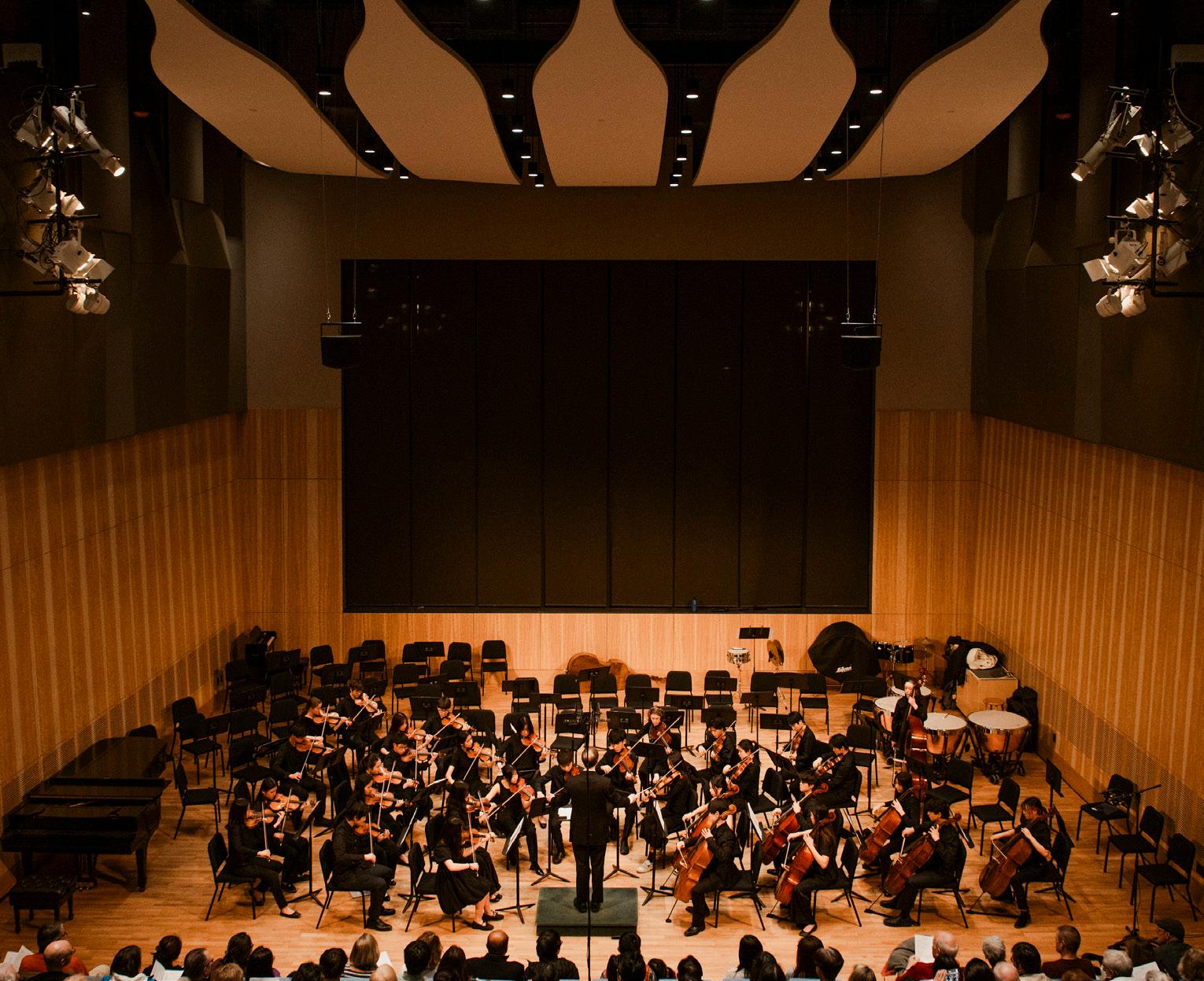
For Tristin Mannion ’82, P ’19, trustee and Building Committee chair, a space where form meets function mattered—and a little something extra.
“We wanted to spark excitement,” Mannion says. “Students, faculty, and the programs that support them all have their own identities and needs. Our goal was to design an environment that’s future-ready—one that embraces the in-between spaces, allowing them to breathe, adapt, and transform into multifunctional landscapes where unique needs are not only met, they thrive and enrich one another.”
The building has already become a creative hub, with students hosting interdisciplinary art and music showcases, movie nights, and open mic events.
“We had been heading in this direction for some time but kept hitting the wall with limitations of space,” says music instructor Christina Landolt ’02. “This building blew down that wall, and it expands whose voices we’ll be hearing in this space, which is huge.”
Students can now study production and mixing and expand their ability across a wide variety of musical styles. One student, adds Siefkas, will focus on house music next term, a genre of electronic dance music.
“It hasn’t been very long, but I’ve already had so many fun experiences here,” says saxophonist Brandon Fu ’25. “Just winter term alone, I’ve begun to produce music and use the recording studio, which is just a crazy thing for us to have! Every day I get to walk in and find something cool to do.”
An official community open house for Falls Music Center is planned for May. Amy Falls hopes to attend with her father, Dr. Hugh Falls, who is 94 years young and still enjoys playing the piano.
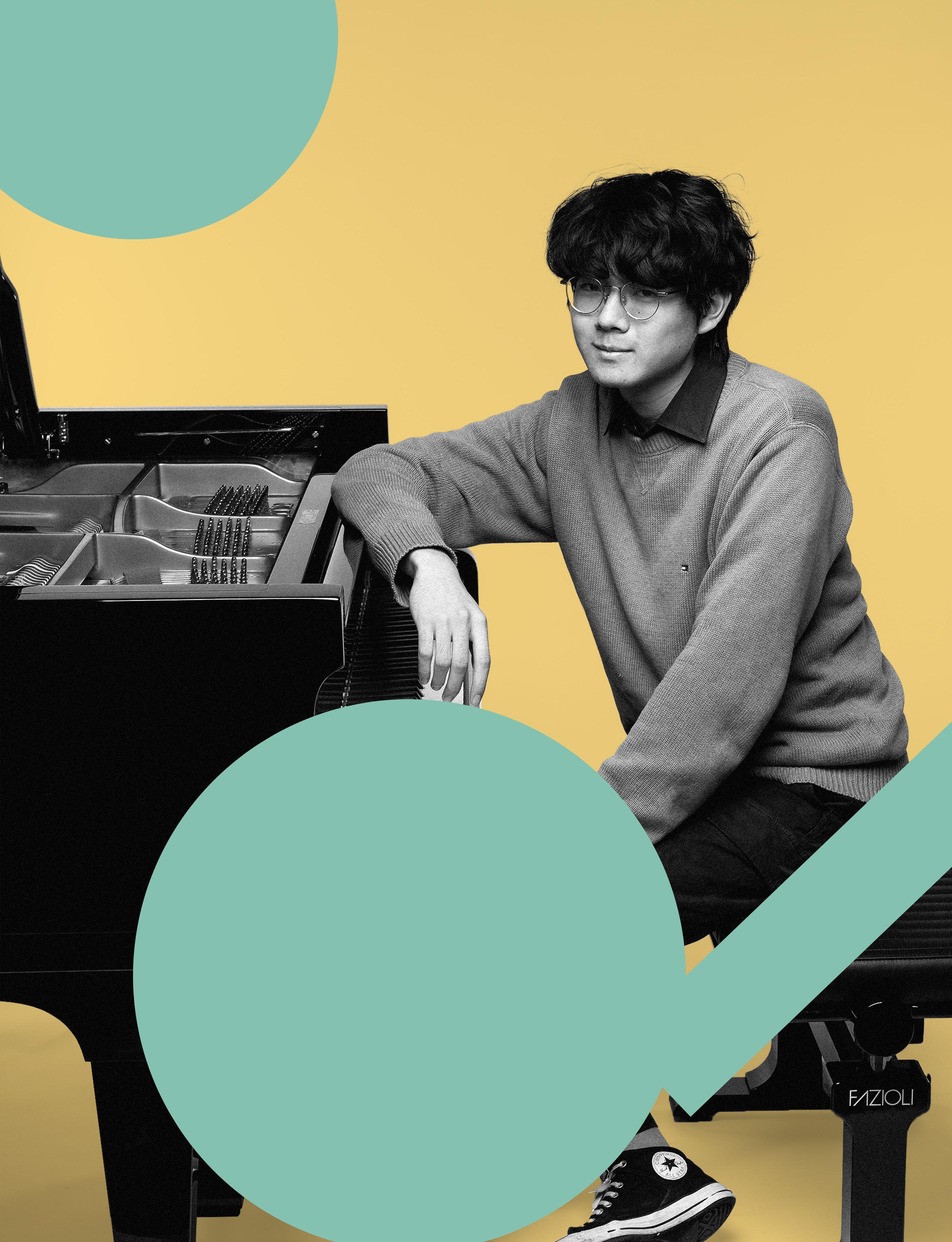
William Ge ’25
Hometown: Chester Springs, PA
William started playing piano at age 4. He has since appeared with eight orchestras across the United States and Europe, including the Chopin for All concert series and NPR’s From the Top
QWhat does music mean to you?
It’s my greatest, most faithful companion. It’s the most versatile tool I wield, the language I understand best. It’s something that carries within it all the stories I’ve lived for 13 years—countless stars and brilliant sunsets. It’s my way (and the way of all my musician friends, I’d like to think) of finding and creating wonder out of the everyday.
AN EVOLUTION OF MUSIC AT ANDOVER
1870
Music was mainly studentinspired and led without faculty instruction. Interested students participated in choir, glee club, various quartets, a banjo club, and a mandolin club.
1916 Abbot Academy introduces a course in rhythmic expression, a progressive approach to integrating movement and music into education.
1887
The Fidelio Society choir and chorus was founded at Abbot Academy.
1912
The modern period of music at Andover begins with the appointment of Carl Friedrich Pfatteicher as director of music, a post he held until 1947. A Bach scholar, he also shepherded a successful choir, glee club, and small orchestra.
1965
The music scene at PA flourishes with the emergence of student bands like The Rising Storm, which gains recognition for its contributions to the garagerock genre.
1973 PA and Abbot form a singular school, and students gather to view the first coed musical, Faculty Follies
1968
Susan McIntosh Lloyd, a historian, scholar, and musician, arrives at Abbot Academy to teach history and music. When the schools merged in 1973, she also directed chamber music and Fidelio.
1975
William Thomas joins PA, ushering in a new era for music (see page 28).
1983
Graves Hall, constructed a century earlier as a science building, gets a makeover to accommodate a growing music department.
2025 Falls Music Center opens to support the future of music at PA.
Falls’s mother Alice, also 94, suffers from cognitive decline but continues to take great joy in hearing her favorite old tunes played on the piano.
“Music speaks to human beings in a way that is very powerful,” Falls says. “It’s a language that crosses barriers. In this time of needing to build bridges, music is another avenue—like striking a match that lights the way for a kid waiting to discover their next passion.”
Students watching and participating in a recent “Coffeehouse” event—the culmination of a song writing class, where they wrote and performed their own
“It’s the people who make it truly magical.”
WILLIAM GE ’ 25
music—agree that Falls Music Center is Andover’s promise to nurture the artists and audiences of tomorrow.
“It’s the people who make it truly magical,” says pianist William Ge ’25. “Being able to play chamber pieces, perform concerts, and listen to the incredible work of my friends is what makes the music program feel like home. Our community is like a love letter to the different ways music has shaped us.”
Hometown: Lexington, MA
QWhat is your favorite thing about playing music at Andover?
Andover is home to amazing players from all over the world who share a deep love for music. The culture of classical music is very specific, so having a close and supportive community in the music department guarantees you’ll meet like-minded peers. I have made some of my closest friends—like Annabelle, Claire, and Julia—playing in orchestra, and being around so many other talented individuals has inspired me to improve my playing as well.
Beijing, China
1995
The Andover Bulletin highlights the ongoing evolution of the music department, showcasing alumni achievements and the Academy’s commitment to musical excellence.
See what alumni are saying about Falls Music Center on page 40.
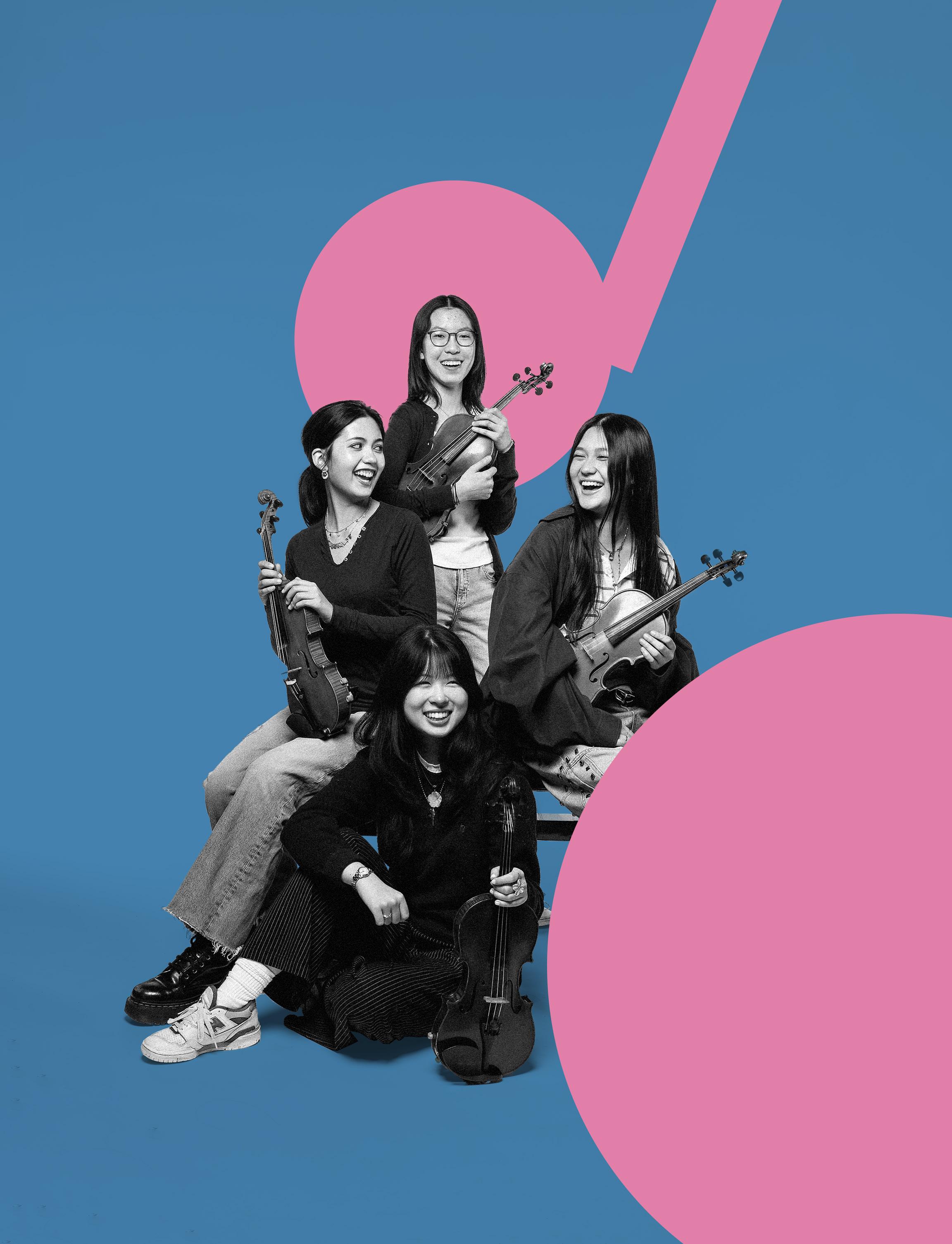
MA
Hometown: Skillman, NJ
QWhat drew you to playing music?
I knew loved music the minute I heard Britney Spears playing at the mall when I was 3. My parents didn’t let me listen to Britney at that time, so I’d shut my bedroom door and secretly watch her music videos while jumping on my bed. Of course, you can imagine just how quiet a 3-year-old jumping on a bed to “Oops...I Did It Again” can be, so eventually I was caught. My parents confiscated my iPad for two weeks and decided that I should channel my musical passion elsewhere: a Suzuki Book 1 Violin Group Lesson. Four-year-old me flew through those group lessons with ease, graduating to a new level each month. I credit my success to Britney.
Chloe Lee ’17 and Claire Lee ’19 launch an app bringing
BY RITA SAVARD
Sisters Chloe and Claire Lee have always had an eye for style and an entrepreneurial spirit to match. From selling thrifted finds as teens to amassing over 650,000 followers on the secondhand marketplace, Poshmark, their journey in the resale world started early. During the pandemic they had their lightbulb moment. Enter Selleb, an innovative app that turns shopping receipts into a new kind of social currency. Unlike traditional platforms, Selleb doesn’t just showcase what people like, it requires proof of purchase—yes, your shopping receipt—to create an honest space for product discovery, free from fake reviews and influencer-sponsored noise.
How did a shared love of fashion inspire Selleb?
CHLOE: We’ve been fashion-obsessed since childhood. Even with a strict dress code at our French school, we found ways to accessorize—bows, buttons, patches. But growing up in a household where achievements were rewarded, we had to earn the money for the fashion we wanted. Prize money from violin and cello competitions didn’t go far, so we got creative.
CLAIRE: When we were 13, online secondhand shopping was just emerging. Poshmark (a platform for reselling clothing and accessories) caught our attention, and our first sale—a Victoria’s Secret phone case—happened while we were sleeping. Earning money in your sleep? Totally mind-blowing. That moment changed everything. We got so hooked we started selling everything in our closets, our family’s closets, and flipping thrifted clothes for profits. By high school, we were fashion bloggers with corporate sponsors.
You put fashion aside for a while—why?
CHLOE: College. I was considering consulting work, Claire interned in investment banking. But then came the Covid summer of 2021. We reminisced about Poshmark and wondered how to make secondhand selling exciting again. That’s when we had the idea for Selleb—a celebrity fashion auction platform.
CLAIRE: We went all in. I dropped out of Georgetown, Chloe changed her mind about consulting, and we poured our savings into it. We got venture capital funding and built Selleb 1.0. But the real insight came later—people weren’t necessarily buying;

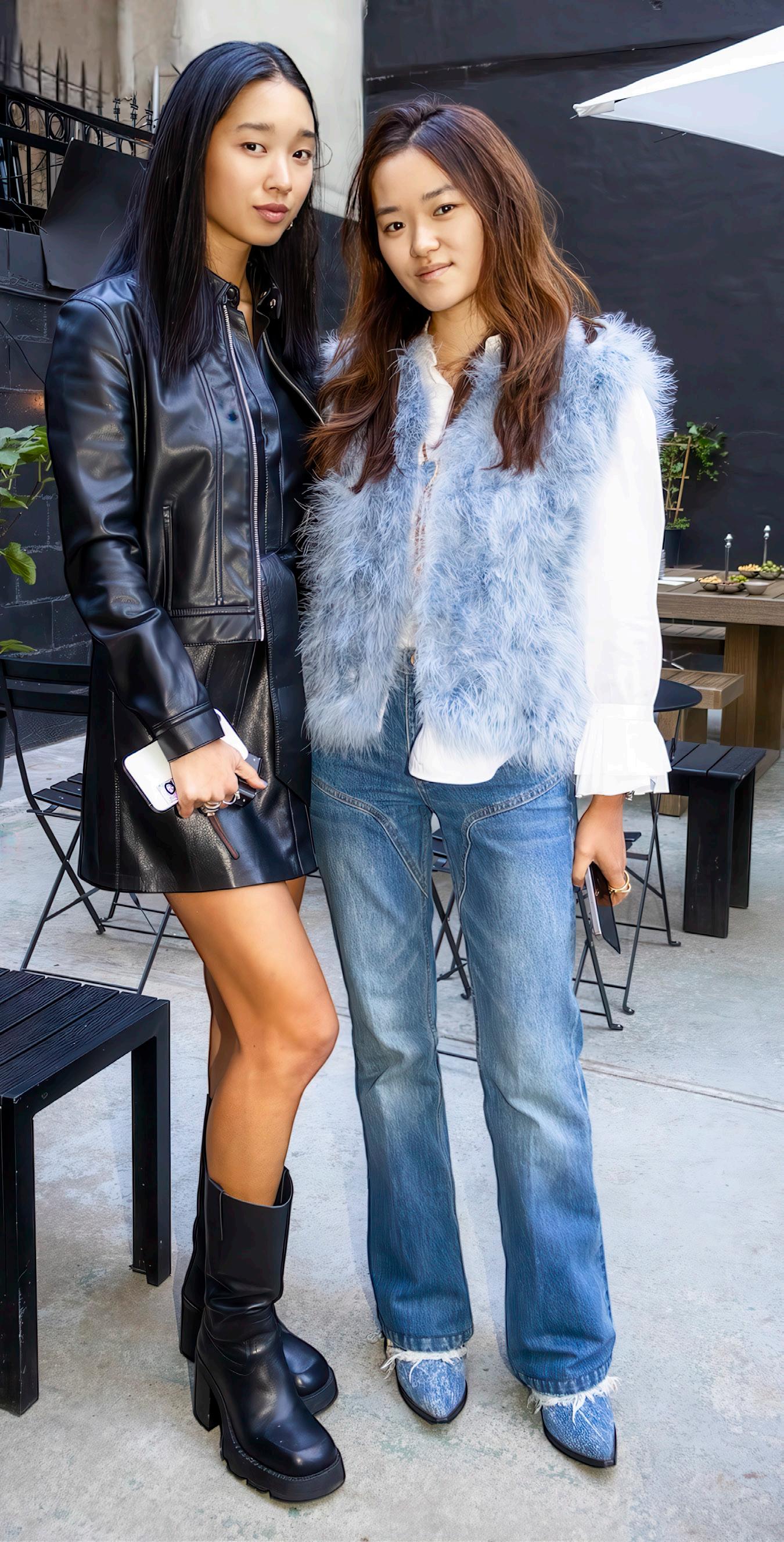
they were looking for inspiration. That’s how Selleb 2.0 was born: a platform where users share their actual purchases through receipts, creating a trusted discovery tool.
What is Selleb’s core offering?
CLAIRE: Honest recommendations backed by proof of purchase. Money shapes the world, yet transparency around spending is rare. Selleb reveals what people truly value, creating a real-time cultural archive of consumer behavior.
What makes Selleb stand out from other platforms?
CHLOE: No other platform is rooted in such unvarnished, raw inputs as receipts. When a user forwards a receipt or
links their Gmail account to Selleb, our system automatically parses order confirmation emails. We use LLMs (Large Language Models) to structure data from emails and turn them into posts. Upon a user’s approval, these posts are pushed to the user’s profile and into their feed, similar to content distribution on Instagram.
CLAIRE: We turn receipts into insights. Your purchases define your style, values, and taste. With AI, we’re mapping users’ “taste DNA” to connect them with like-minded consumers.
What’s the most valuable lesson you’ve learned from a setback or failure?
CHLOE: Focus on your own lane. Startups are a marathon—sometimes you’re ahead, sometimes you’re adjusting. Don’t get distracted by others.

Best advice from an Andover mentor?
CLAIRE: “Question the question.” Andover taught me first principles thinking— breaking ideas down to their core truths. Instructors Jenny Elliott and John Palfrey ran their class like a Socratic dojo. They never gave answers, only better questions, which forced me to refine my thinking. This skill is invaluable as a founder.
CHLOE: “Always ask for help.” Instructor Bill Scott encouraged me to attend conference blocks. It became part of my routine. It’s often in these seemingly mundane moments and experiences that friendships are sown. Mr. Scott is still a friend to this day.
What advice would you give young entrepreneurs?
CHLOE: Help can come from unexpected places. Keep an open mind.
CLAIRE: Fail fast, fail often. Mistakes are key to growth. Indecision is worse than a wrong decision. Better to act, iterate, and learn quickly than be paralyzed by overthinking.
What lessons from Andover still benefit you today?
CHLOE: Learning to prioritize. At Andover, there was never enough time to do everything perfectly. That experience taught me efficiency and consistency, which are essential in business.
CLAIRE: At Andover, I learned that conviction isn’t about being the loudest or the most loquacious in the room. It’s about doing the groundwork, listening closely, and having the courage to defend ideas others might dismiss. That rigor taught me to take risks and stay open.
CLAIRE: Start now, fix later. Perfectionism kills momentum. Small experiments will teach you more than months of overthinking. The market rewards speed.
What excites you about the future of fashion and beauty?
CHLOE: The decline of influencer-sponsored ads and the rise of Substack— people crave more authentic brand discovery.
What’s next for Selleb?
CLAIRE: Growth, distribution, and making receipts sexy. Expect major partnerships and in-person activations. We recently co-hosted a dinner with Anna Delvey— she’s now a Selleb user! If we can get her receipts, we can get anyone’s. Dream collab? A co-branded credit card.
Final thoughts?
CLAIRE: Your spending tells a deeper story. We’re just getting started in uncovering it.
Join the receipt-sharing app revolution at selleb.com
How Fernando Gonzalez ’66 turned forgotten spaces into an enduring educational legacy
BY JENNIFER MYERS
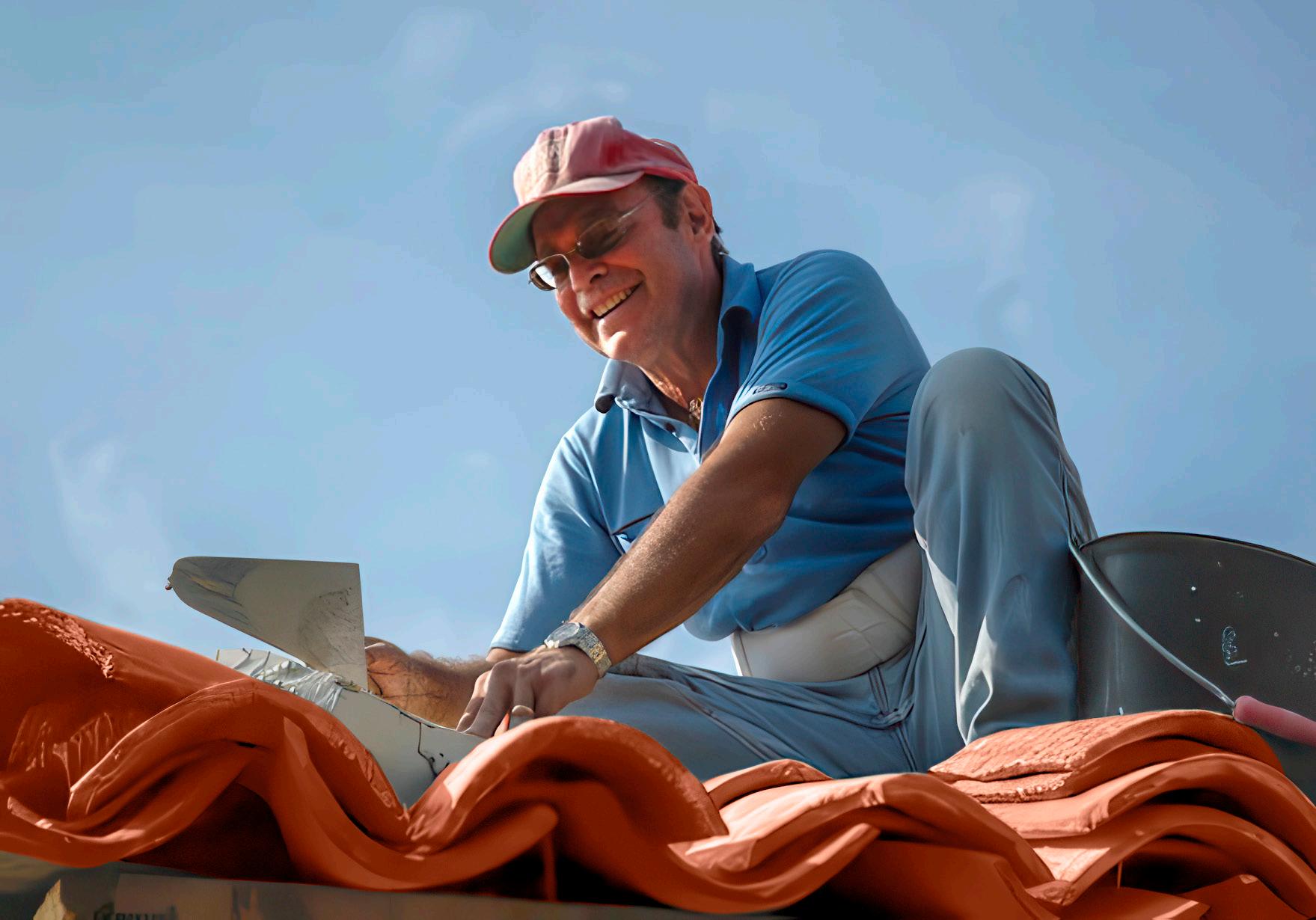
In 1972, on a leave of absence from Harvard Design School, Fernando Gonzalez seized an opportunity that would shape his future.
Recruited by Andover classmate Topper Lynn ’66, he traveled to Switzerland to launch an art program based on the Phillips Academy model at The American School, part of the The American School in Switzerland (TASIS) family of international schools. Lynn was impressed by the work Gonzalez had done as a teaching fellow at Andover in studio art and co-teaching architecture with his mentor, John McMurry.
While in Europe, Gonzalez traveled to the south of France, where he helped restore an 18th-century stone building. There he spotted a hamlet of six buildings with spectacular views of the Rhone Valley. Hiking to it, he realized it had been abandoned; one of the buildings had no roof and a tree had taken root inside.
He purchased the barn on the 17th-century property in 1974 for $1,200.
Gonzalez eventually acquired all six buildings and spent decades slowly building his dream—a vibrant artist community called Les Tapies. In 2004, 30 years after purchasing the first barn, he launched the Les Tapies Arts and Architecture Program, attracting 30 high school students each summer from around the world.
“Les Tapies has been a labor of love
for the past 50 years,” Gonzalez says. “It combines all of the attributes of a TASIS School: a beautiful campus, a challenging program with cultural field trips, highly qualified teacher-artists, and a nurturing environment that brings out the best in our students.”
Les Tapies, however, was just a side project for Gonzalez. In his day job, he stayed with TASIS, overseeing campus development projects for schools in England, Switzerland, France, Greece, and Portugal, and co-founding TASIS Dorado in Puerto Rico.
“Creating beauty is at the center of our campuses based on traditional architecture, which is why TASIS England has a very New England independent school character and the TASIS campus in Lugano, recently voted the most beautiful school in the world by Architectural Digest , has a classical Italianate hilltop village style,” Gonzalez says. “TASIS Dorado, based on the concept of a Jesuit monastery I visited in Salamanca, reflects the tropical nature of Puerto Rico as well as the contemplative religious architecture so conducive to learning.”
could complete. The site had significant amenities, including underground parking and high ceilings, but faced obstacles such as strict local regulations and Covid-related delays. Classes were held in a nearby Ritz Carlton hotel for the first several weeks of its inaugural year.
Today, the school, designed in the style of a Portuguese villa, serves 872 students from 65 countries. It is considered a success by Lynn Aeschliman, daughter of TASIS founder M. Crist Fleming, calling its completion a “miracle.” Aeschliman also dedicated a book, Beauty and Duty, to Gonzalez, honoring his 50 years of service to TASIS.
“Indeed, my life has been shaped by Andover, which enabled me to discover my three passions in life: architecture, the arts, and education.”
Gonzalez certainly has come a long way from the roots of his architectural career—selling lemonade and comic books as an 8-year-old entrepreneur to finance the building of tree houses on his family’s property in Lake Saranac, New York. He attributes much of his success to his time at Andover.
Alumna encourages women to believe in themselves
BY ALLYSON IRISH
If you had known Sherita Gaskins-Tillett 10 years ago, you would have thought she had it all. A successful OBGYN with a degree from Georgetown University, GaskinsTillett was married and had a young daughter. It was a picture-perfect life. Or so it seemed.
“I was drowning in the demands of my personal and professional life. I was trying to be a great wife, a great mother, and a great doctor, but I felt like I was failing at everything,” she says.
On a much-needed vacation to Jamaica, Gaskins-Tillett had a moment of clarity. Although she had the trappings of a successful life, she felt like “a hot mess.” Something had to change, and she had to be the one to do it.
“It’s really about the stories we tell ourselves,” Gaskins-Tillett says. “We become trapped in prisons of our own making. I believe that we can do anything we decide to do. We are never stuck.”
She began to make small changes, focusing on self-reflection and self-care. And she also noticed other physician mothers struggling with the same issues. Feeling the need to connect with those experiencing similar challenges, she created the Facebook page “Level Up Lady Doc.” Little did she know how dramatically this would change her life.
Ten years later, Gaskins-Tillett has a blossoming complementary career in the health and wellness field. Boss Lady Dream Builders, her Maryland-based business, focuses on helping women create the lives and careers they have always dreamed of. In addition to an active Facebook page where Gaskins-Tillett provides regular words of encouragement, prompts for self-reflection, and general positive vibes, her company offers a Dream Accelerator mentorship program, blog posts, a weekly video podcast called She Built It, workshops, and the annual “A Weekend for Me” women’s retreat.
Gaskins-Tillett has worked with women who’ve changed careers, gone back to school, taken control of their physical health, and made positive adjustments in their marriages and other personal relationships.
“For me, it's about creating a life of abundance that takes everything into account,” she explains. “Your career, your health, your relationships, your finances—everything.”
One of Gonzalez’s greatest challenges was transforming a declining shopping center in the foothills of Portugal’s Sintra Mountains into a world-class school—a challenge many doubted he
“Indeed, my life has been shaped by Andover, which enabled me to discover my three passions in life: architecture, the arts, and education,” says Gonzalez. “At Andover, I learned the value in stretching oneself and working hard to achieve success. How many people can say they have been able to live one passion in their careers let alone three!”
Building her dream life has not been easy or fast, but Gaskins-Tillett has learned a lot about herself and would not change any part of her journey. She recently contributed to the book Made for More 2: Physician Entrepreneurs Who Live Life and Practice Medicine on Their Own Terms, and she continues to grow her business with plans to host more retreats and workshops and expand her coaching to younger women.
“I’ve been thinking, ‘What if I had learned these things about myself in my twenties?’ Oh my gosh. How different my life would have been.”
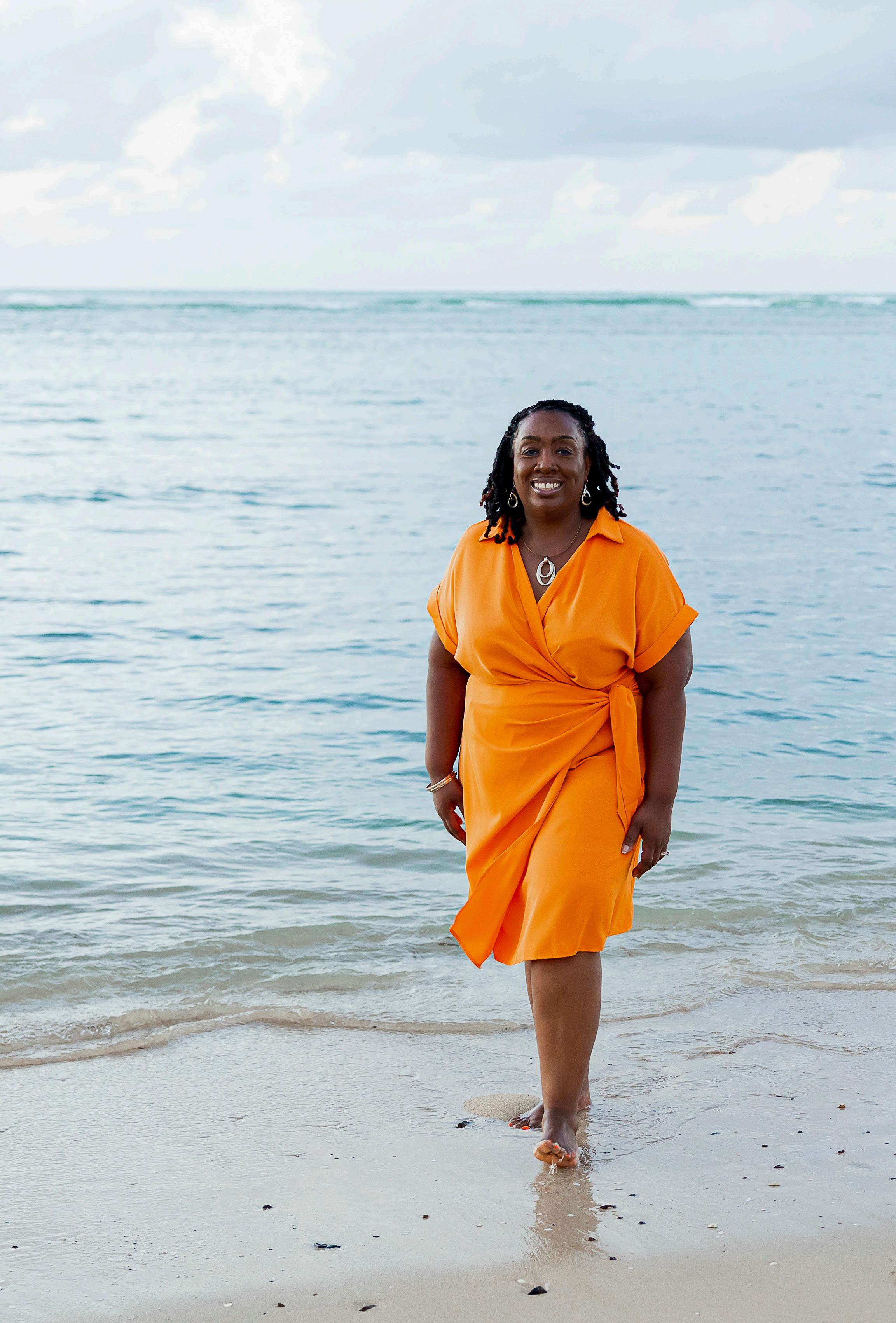
BY KATIE FIERMONTI
Asingle note is beautiful. But many notes joined together? Powerful. A symphony. The same is true for Andover supporters.
More than 540 alumni, families, and friends contributed gifts to Falls Music Center, PA’s first purpose-built home for music. This collective generosity was led by the philanthropy of Board of Trustees President Amy C. Falls ’82, P’19, ’21, and her husband, Hartley Rogers P’19, ’21, and included additional investments from the Academy.
The state-of-the-art facility, which opened its doors in January, enables students and educators to practice, perform, and teach at the highest levels. In every way, Falls Music Center affirms PA’s role at the vanguard of independent school music education. Here, we share donors’ perspectives and reasons for giving:
“More than 80 donors got together to name the Bailey Music Studio for Carroll and Elaine Bailey—a testament to the couple’s long tenure as loving, and beloved, PA educators. In the spirit of the many musical acts they brought to campus, the Baileys’ legacy will rock on and inspire boundless creativity.”
—STEVE VOORHEES ’72, P’04, ’06
“ To create this resource and this opportunity for kids to learn and to share their talents—it’s one of the best gifts we could give. Some of our family’s fondest memories are of music classes, lessons, and performances at Andover. We were delighted to recognize our great-grandmother, actress and vocalist Gabrielle Réjane, with an ensemble room.”
—PATRICK ’83 AND NINA WILSON P’16, ’18, ’20, ’23
“My great-uncles, songwriters George and Ira Gershwin, and my great-grandfather, composer Leopold Godowsky, were famous for taking compositions and adding their own twist to make them new and relevant. I think they’d be thrilled with the Gershwin-Godowsky Court, offering the next generation of worldclass musicians a stunning space to gather, study, and be inspired to craft their own unique musical masterpieces.”
—JONATHAN KEIDAN ’92
“At Andover, I could try different musical avenues, which gave me the breadth of knowledge and confidence to pursue my career in Pentatonix. I’d like my practice studio to not only be a place to master music, but also to be a safe space for students to be as creative as they want to be. And that when they see my name on the door, it gives them hope that, like me, they’ll have a chance to put their mark on the music industry.”
—KEVIN OLUSOLA ’06
“I’ll never forget my three years as an oboist in the Academy Symphony Orchestra. In every rehearsal, our great teacher and conductor, William Thomas, was at the swirling center of the sound. I can still hear the notes. I can still feel the swing. When I invest in Andover, I invest in that feeling— and in all the great teachers who still give so much to their students.”
“I am so pleased to be among the many donors whose lives at Andover were shaped by music. I especially wanted to pay tribute to my chorus teacher, Chris Walter, who believed in every one of us and supported us with endless positive reinforcement— he’s the embodiment of ‘knowledge and goodness’!”
—ELAINE DIMOPOULOS ’96
“The Abbot Academy Fund has a longstanding commitment to music and the arts. To that end, we are proud that our gift helps welcome students to Falls Music Center through the Abbot Academy Terrace. It is fitting that our founder’s name will forever be part of a space that invites artistic excellence—and so much more.”
“Our grandmother, Vera Jameson Takvorian, believed deeply in the power of music to uplift and connect, and her sacrifices helped foster a love and appreciation for music, particularly piano, across generations in our family. In her memory, we are honored to gift a concert-grand Steinway to Falls Music Center and establish a scholarship fund—sharing with others the joy of music she so faithfully nurtured in us.”
BY ALLYSON IRISH
This early expression of independence spawned a lifetime of resourcefulness and practicality—traits that Powell would lean on time and again, especially in the many spaces where she was one of few women.
Facem praetendit ardentem. She holds aloft a burning torch.
This Latin inscription curves around the oval border of a vintage Abbot Academy logo. The design depicts a woman draped in flowing Grecian robes with a torch—symbolizing enlightenment and knowledge—held high in her right hand.
The logo and its words have inspired generations of Abbot alumnae to persevere and look to education as a means for progress and betterment. There could be no better representation of Trustee Emerita Betsy Parker Powell ’56, P’84, ’90, GP’19 and her lifetime accomplishments.
On committees and boards, raising funds and running a business, Powell has left a profound impact on the many people and places she has served.
Known for her keen vision, vivacious personality, and meticulous preparation, Powell was a mainstay on Phillips Academy’s Board of Trustees for 45 years, serving as a bridge to Andover and Abbot’s institutional histories. This past fall she decided to step away from attending regular meetings.
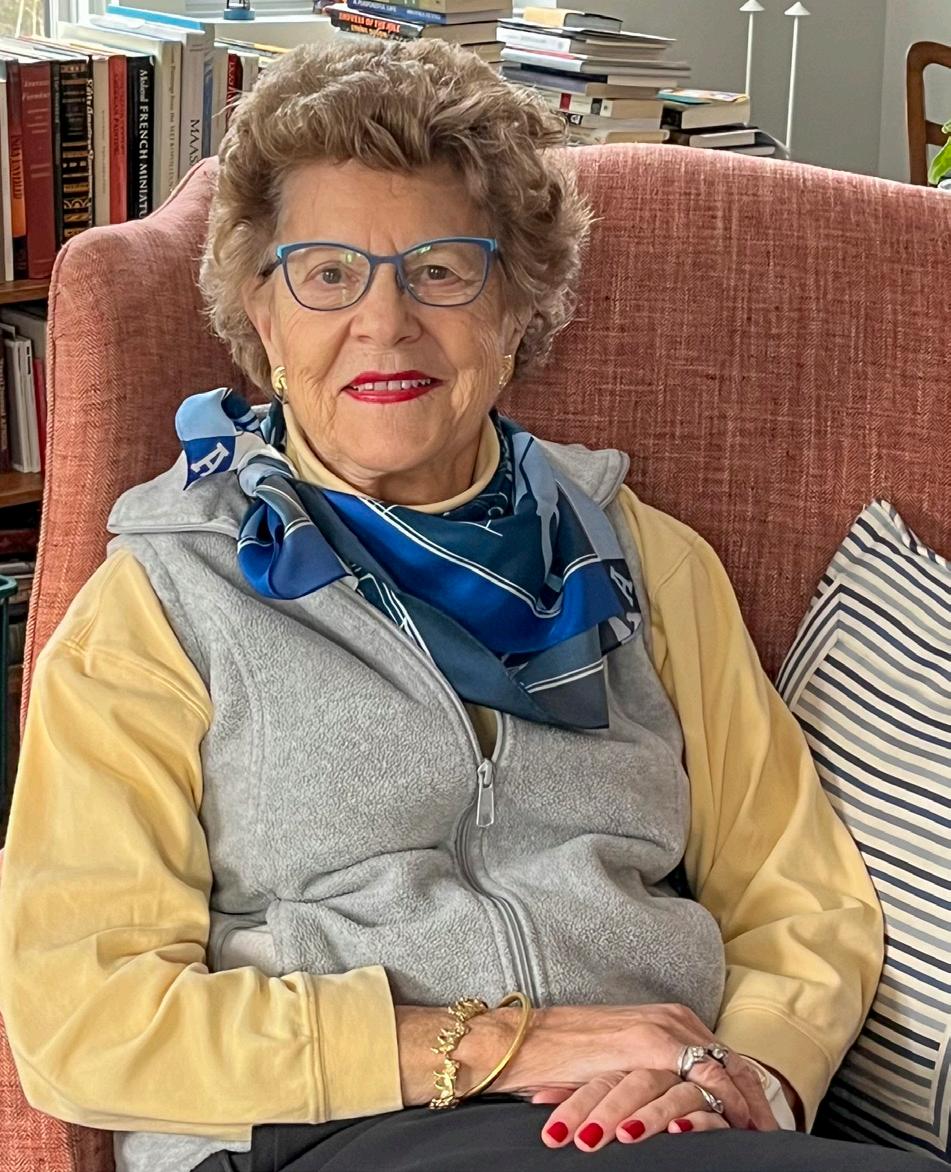
“Good judgment, manners, and respect never go out of style,” says Gil Caffray ’71, charter trustee and board treasurer, who sat next to Powell at board meetings in George Washington Hall for seven years. “Betsy is a beacon for those traits. She has incredible acuity and work ethic and is ageless in terms of her interests and commitment.”
Powell came to Abbot Academy by way of Denver. Her parents, visiting her older sister at the Emma Willard School in New York, heard about Abbot’s impressive curriculum and traveled north to meet with Principal Marguerite Hearsey. They decided Abbot was a good fit and so, in the fall of 1953, 15-year-old Betsy was sent to Massachusetts by train, chaperoned by her mother’s Smith College friends.
“When Betsy commits to something—or someone—she throws her whole heart and soul into the effort.”
—Vic Henningsen ’69
Faculty
Emeritus
Powell was the first woman on the board of BayBank Norfolk in 1988, the second woman elected to PA’s Board of Trustees, and likely one of very few women in the machine manufacturing industry in 1974, when she and husband David founded Diamond Machining Technology, Inc. Together they ran the successful business for 28 years, with Betsy managing the finances, staffing, and marketing while her husband oversaw manufacturing.
For decades, Powell has supported Andover through annual giving, endowed funds, and her work on the board, where she chaired many committees. She was president of the Chapel Cemetery Association and— through her fundraising, leadership, and vision—was able to transform what had been an overlooked area of campus. This work was honored with a bench in the cemetery engraved with her name.
“That bench is meaningful,” Powell shares. “All of my children [Parker ’84, Clare, and Liz ’90] have sat there with me.”
As Powell begins to slow down, she reflects on the “thrilling” experience of contributing to the many boards, committees, and organizations over her lifetime. She is proud of her work at Andover—especially in helping attract more women to leadership roles—and hopes the Academy will continue its focus on diversity and financial strength.
As for advice for future Andover trustees, Powell answers as only she can.
“If you are a leader and you want to accomplish something, you need to believe in and build your team. Don’t be too pushy. Listen and learn and speak up.”
Read more about Betsy Parker Powell ’56 at andover.edu/magazine
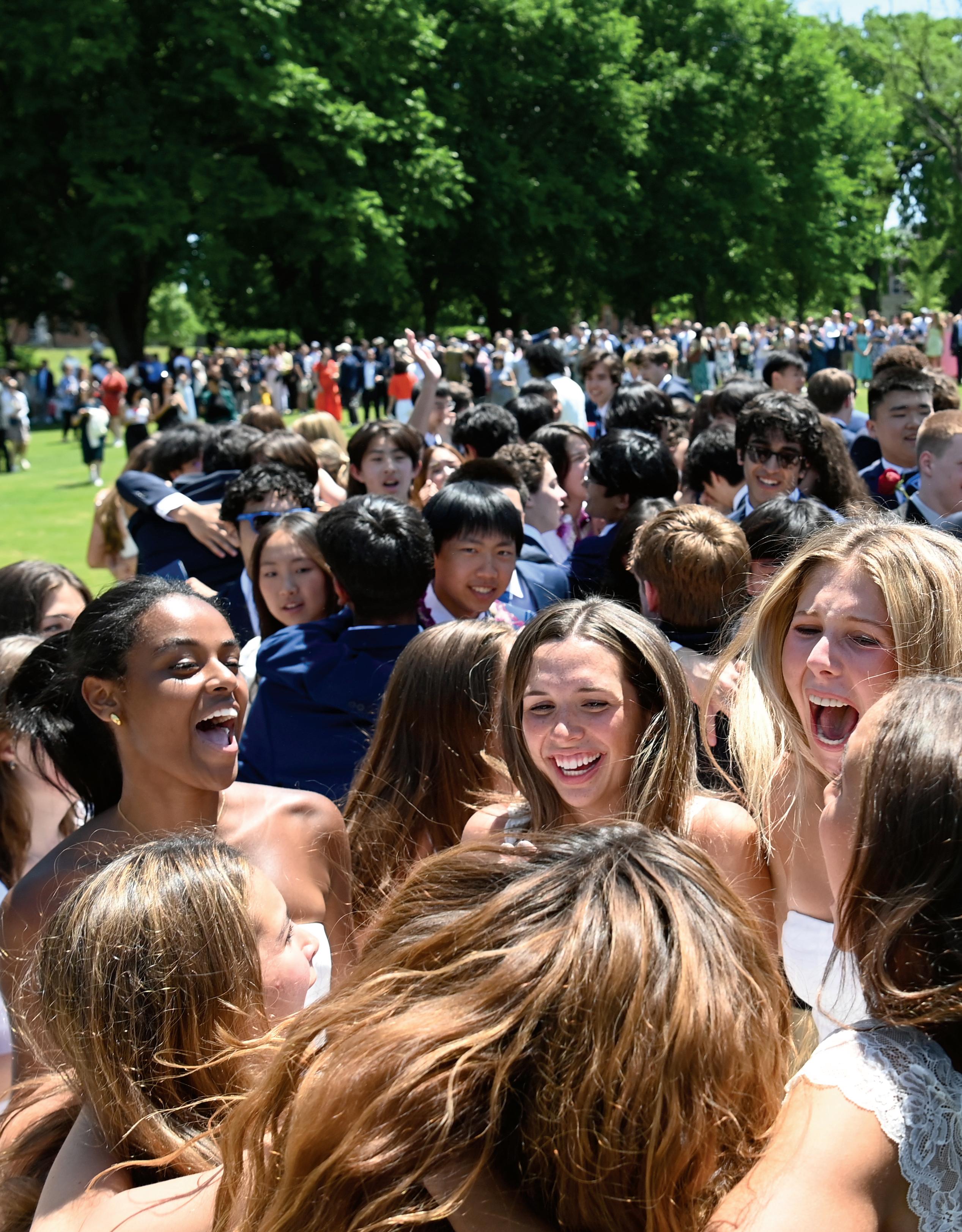
Your annual gift to the Andover Fund. That’s because every donation really does matter here.
When our alumni, families, and friends give together, Big Blue things happen.
Show your support today at andover.edu/together.

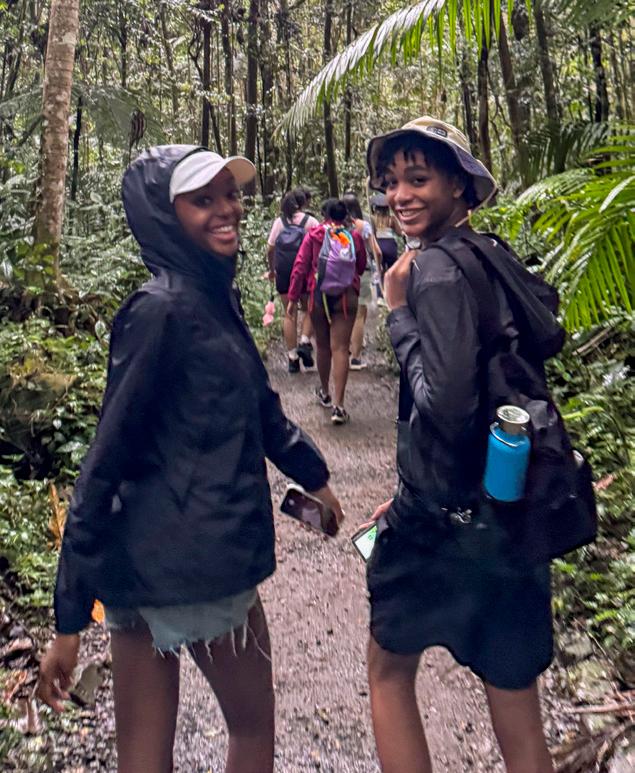


Puerto Rico, London, and Sweden, among other places. Students traveled around the world and across the U.S. this spring in Andover’s Learning in the World programs. See page 7 for more about the Swedish trip, and visit andover.edu/springlitw for additional photos.
